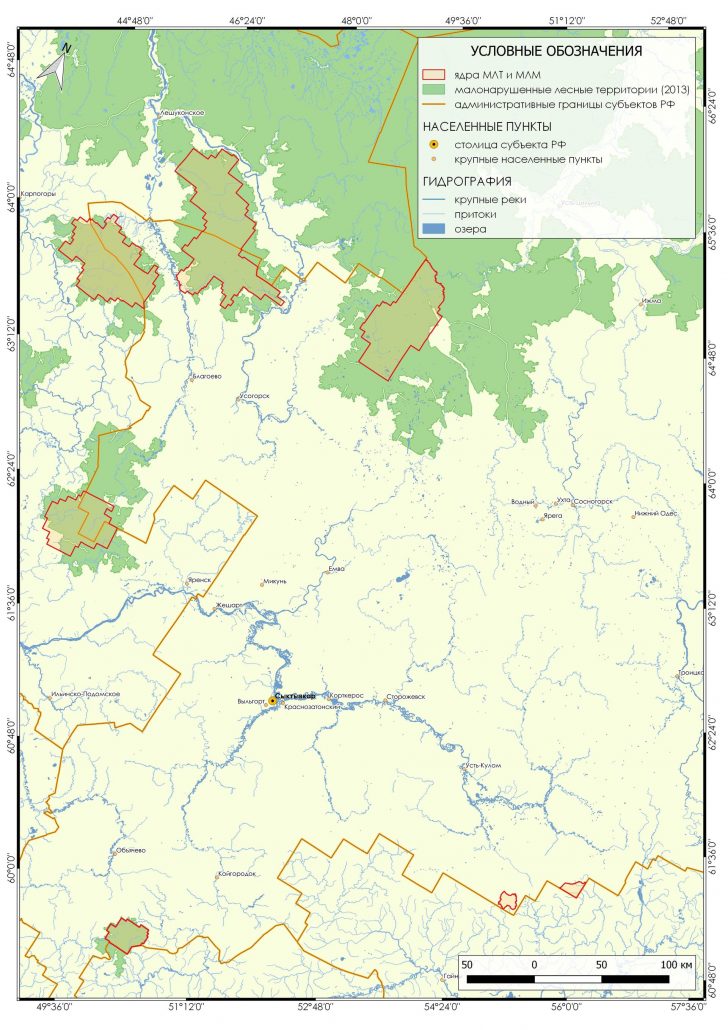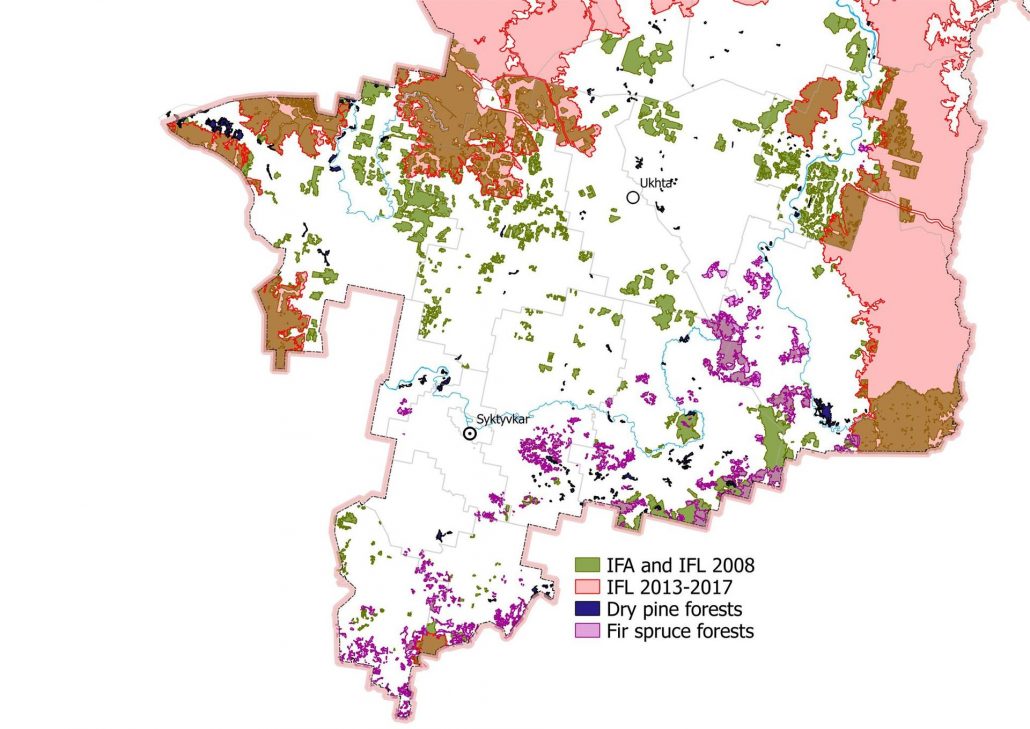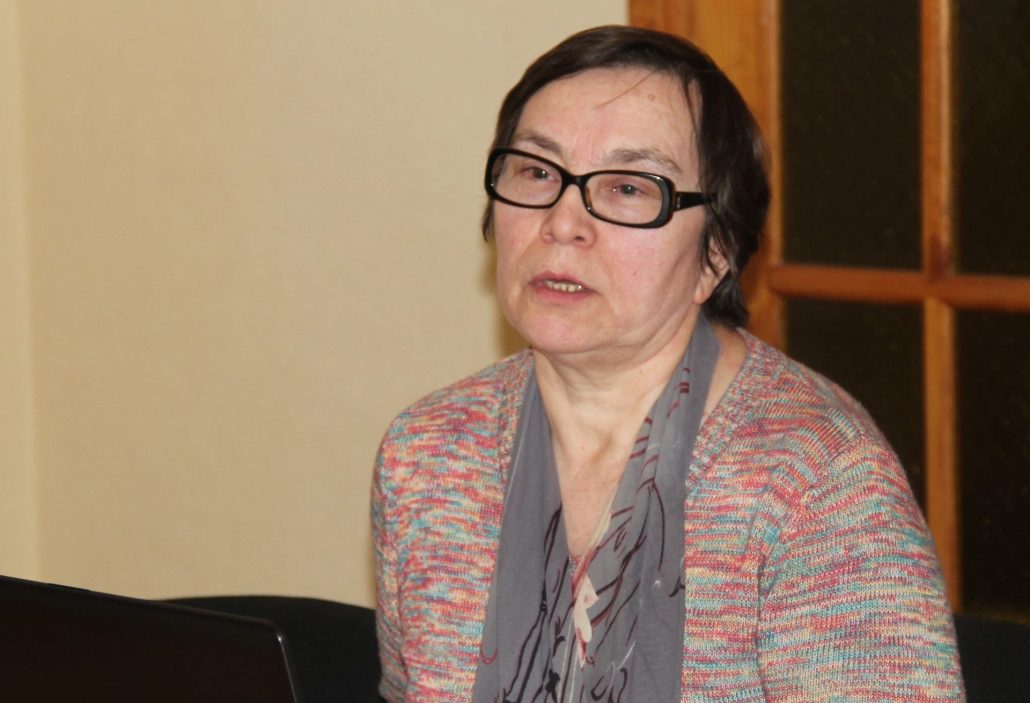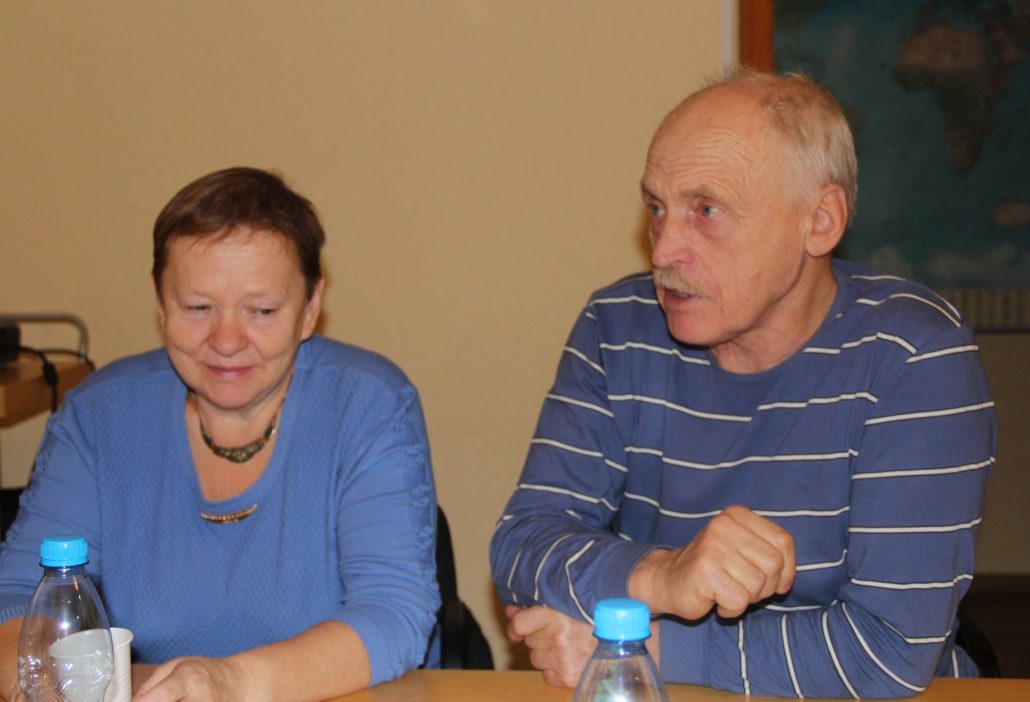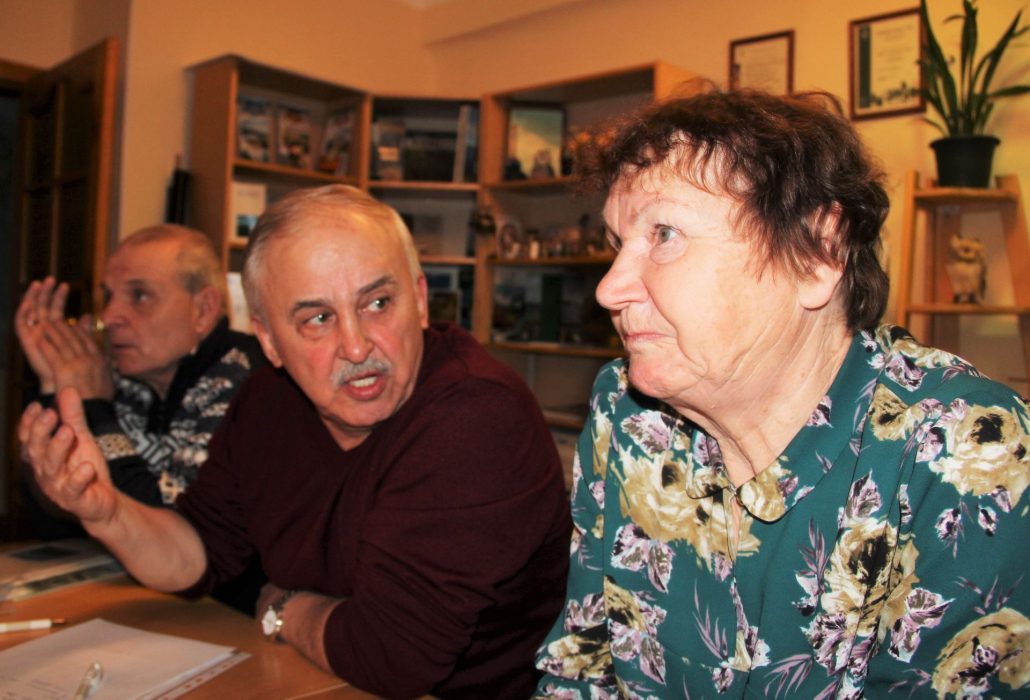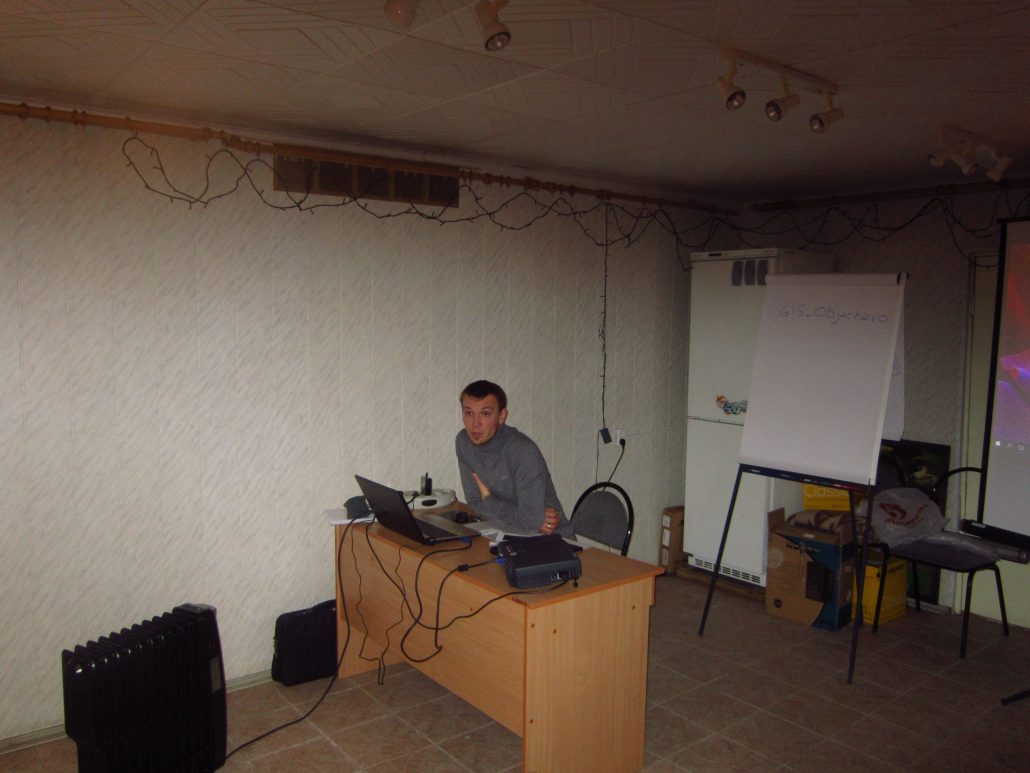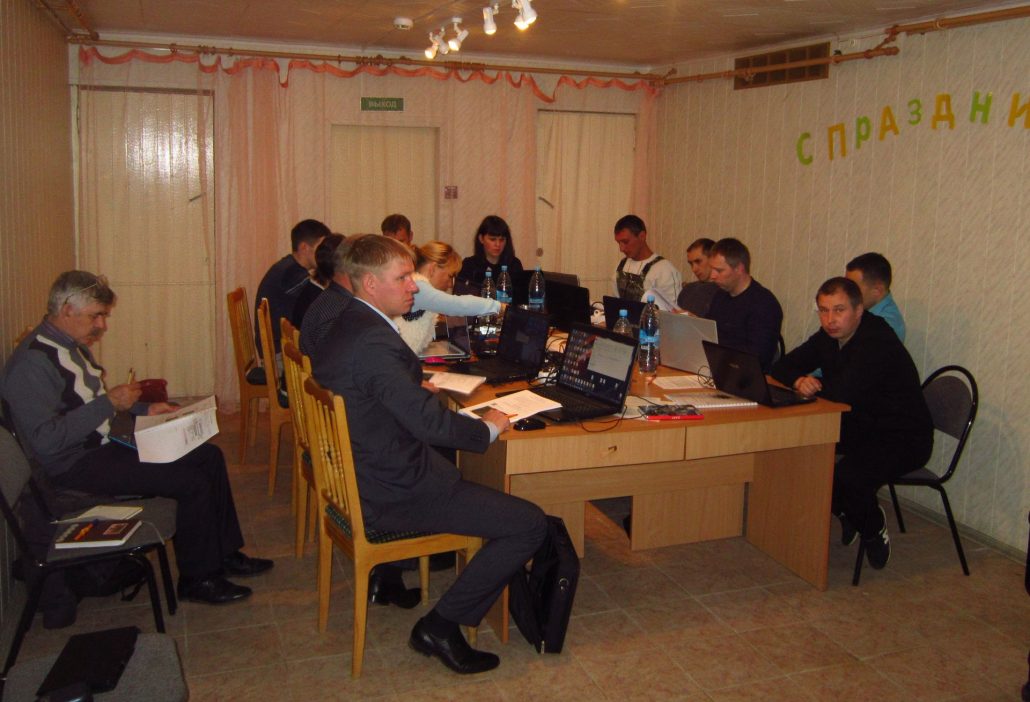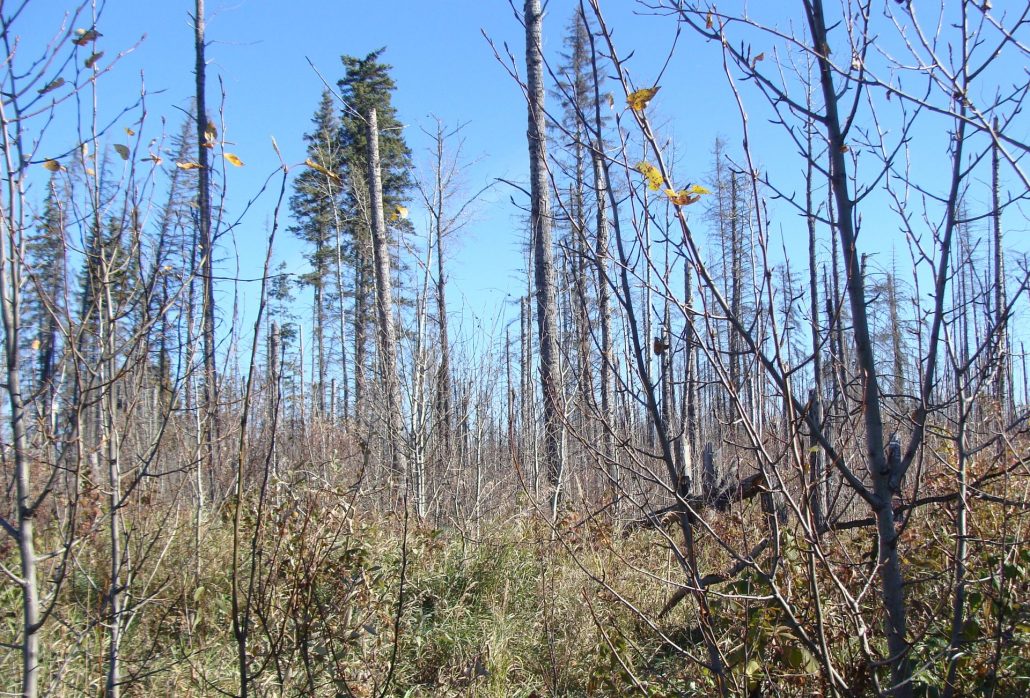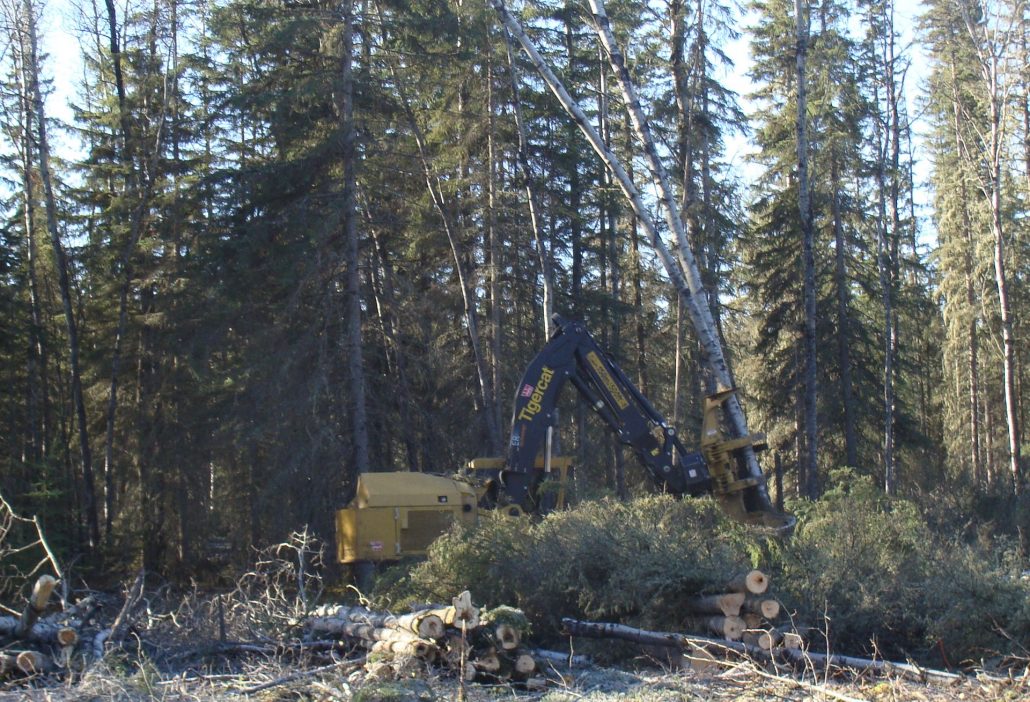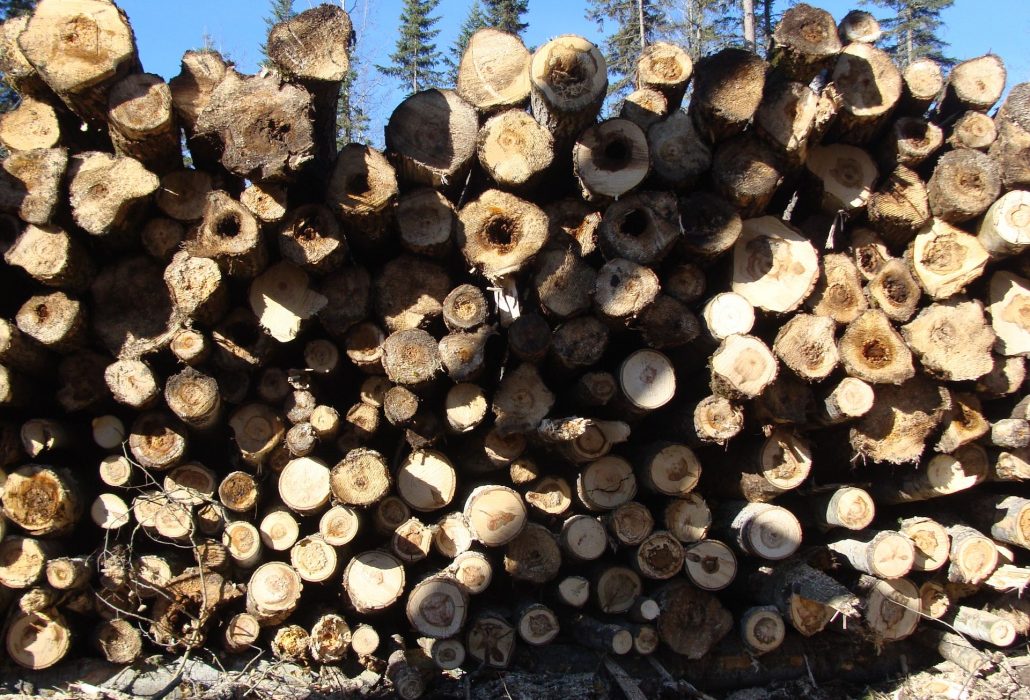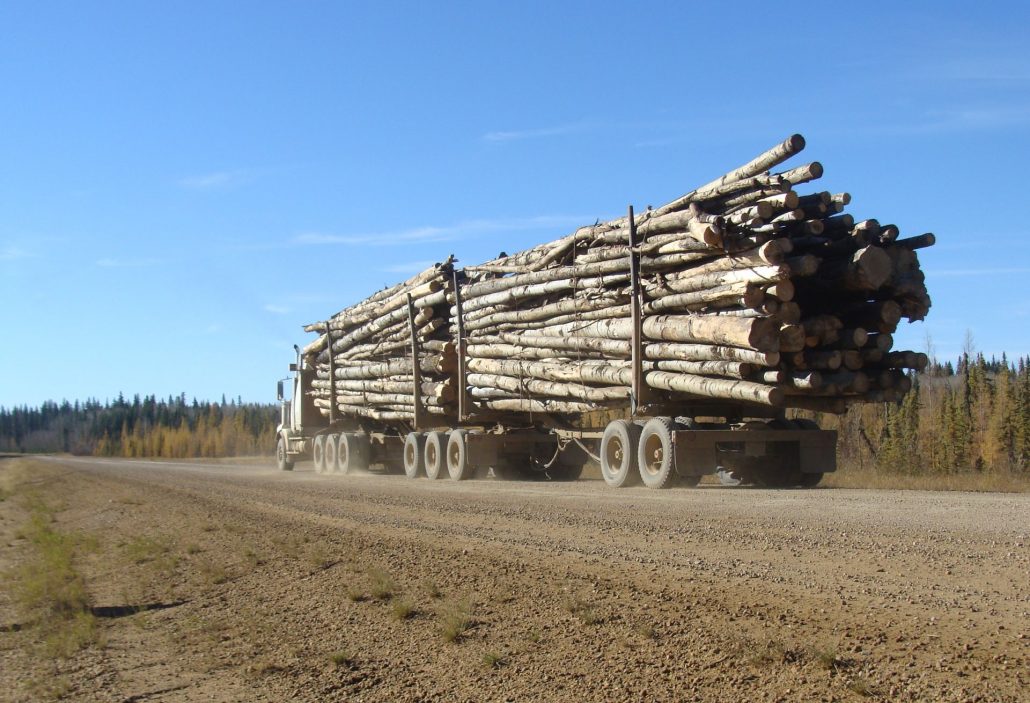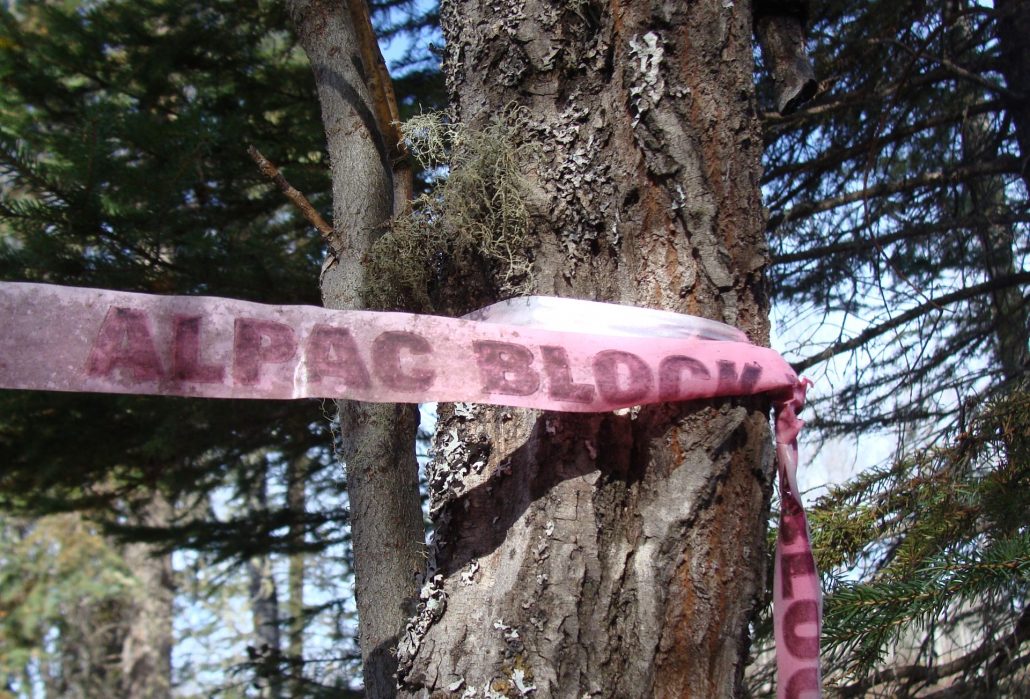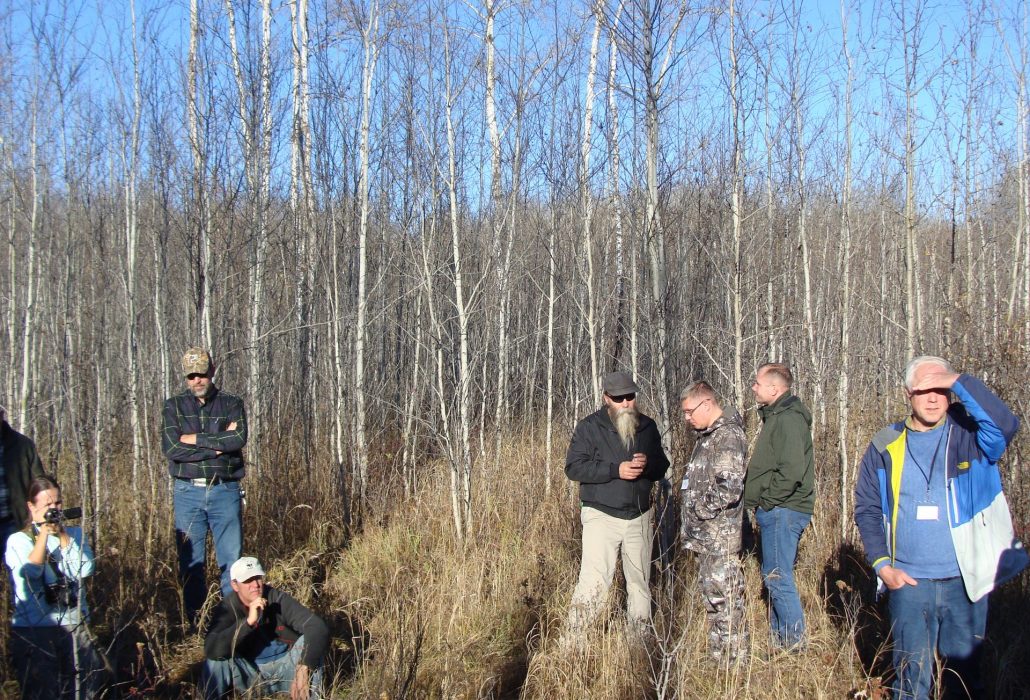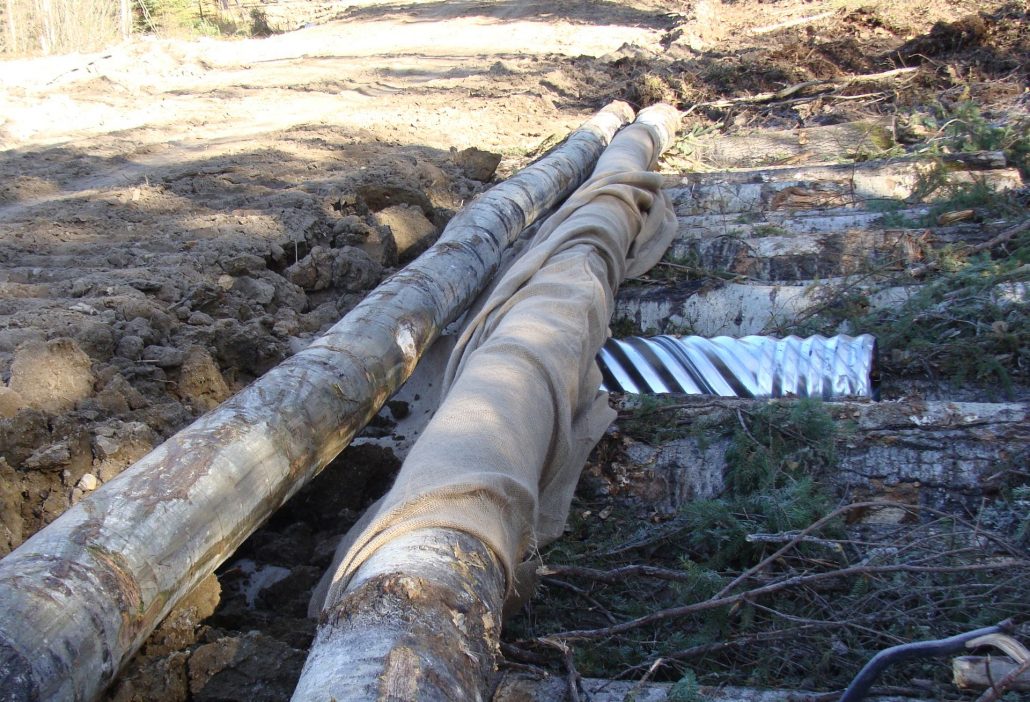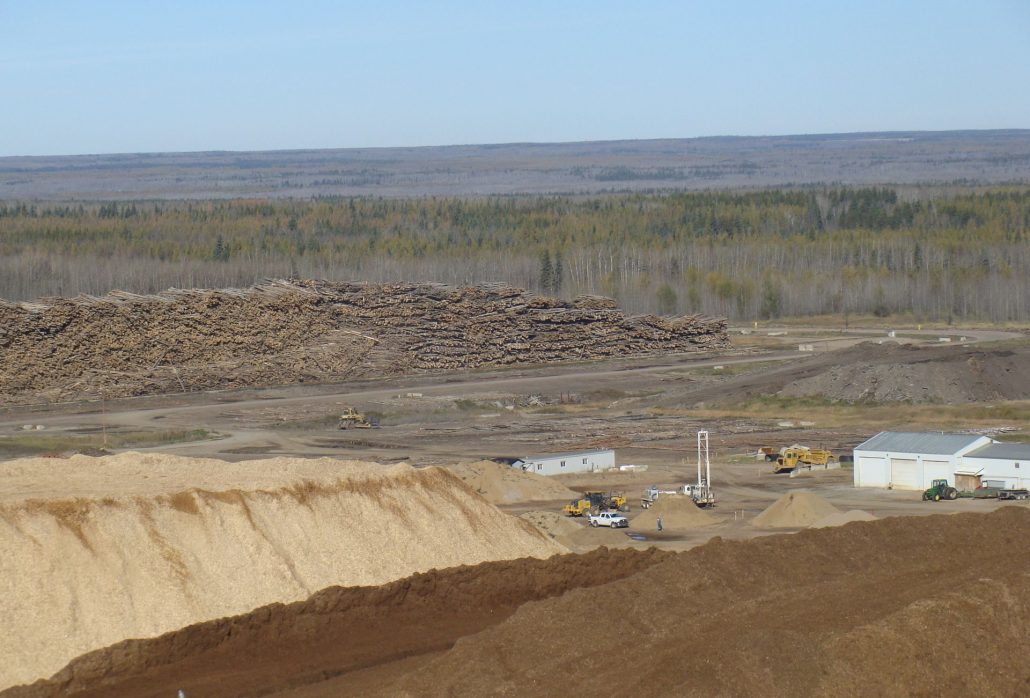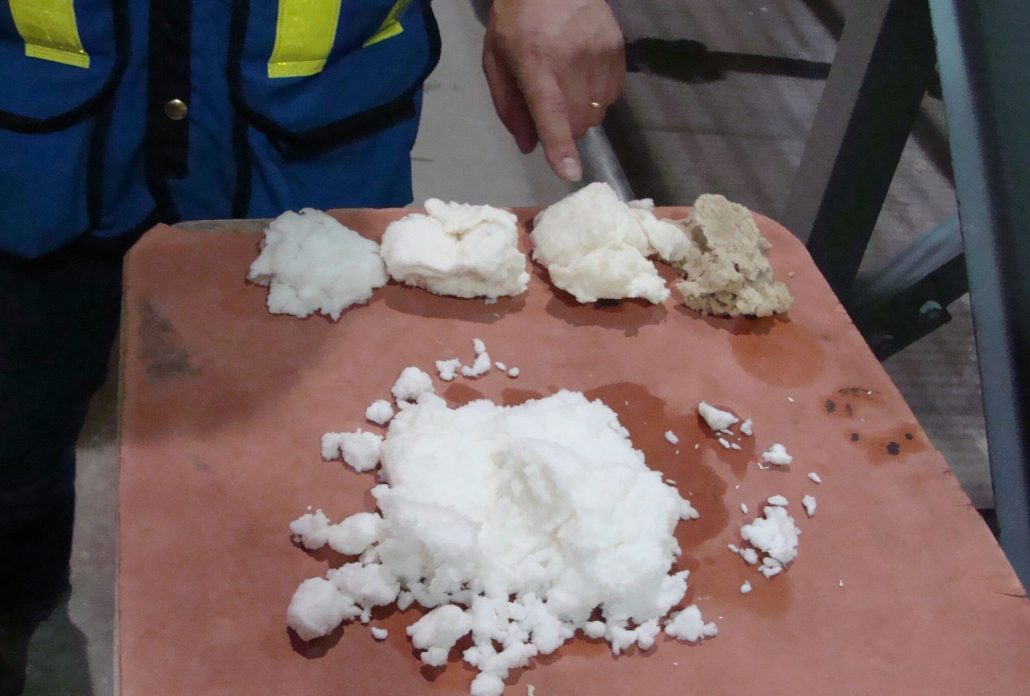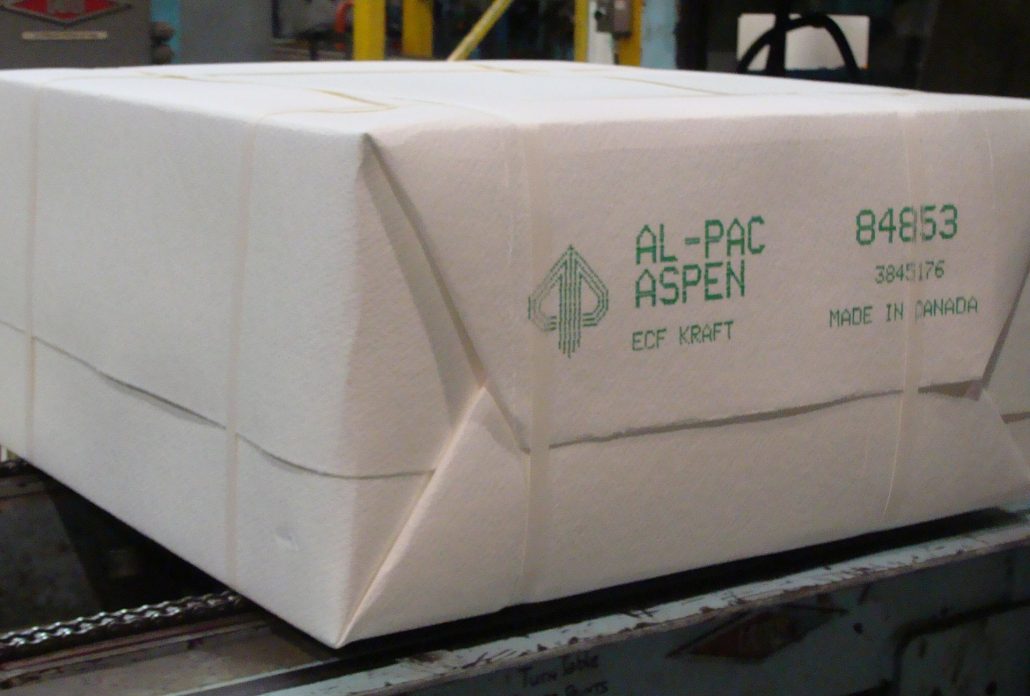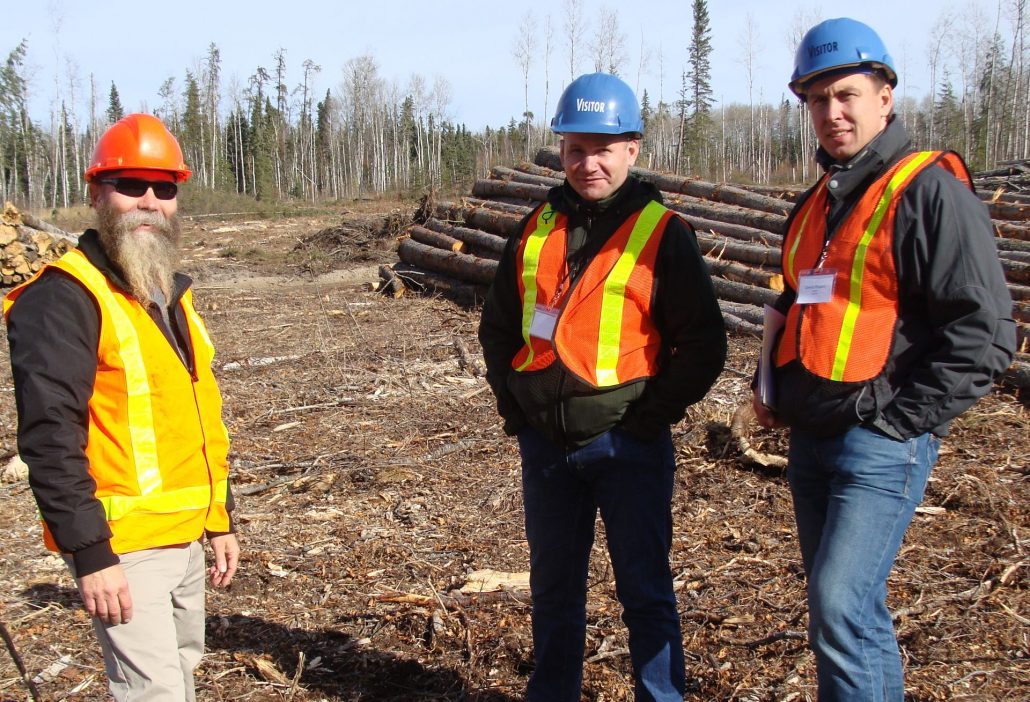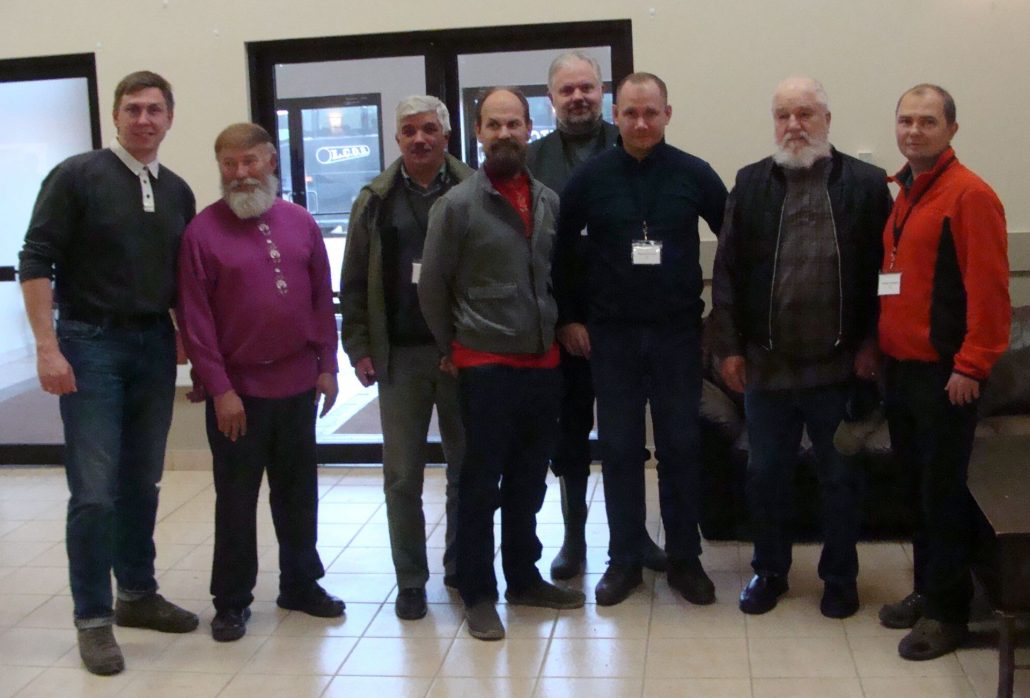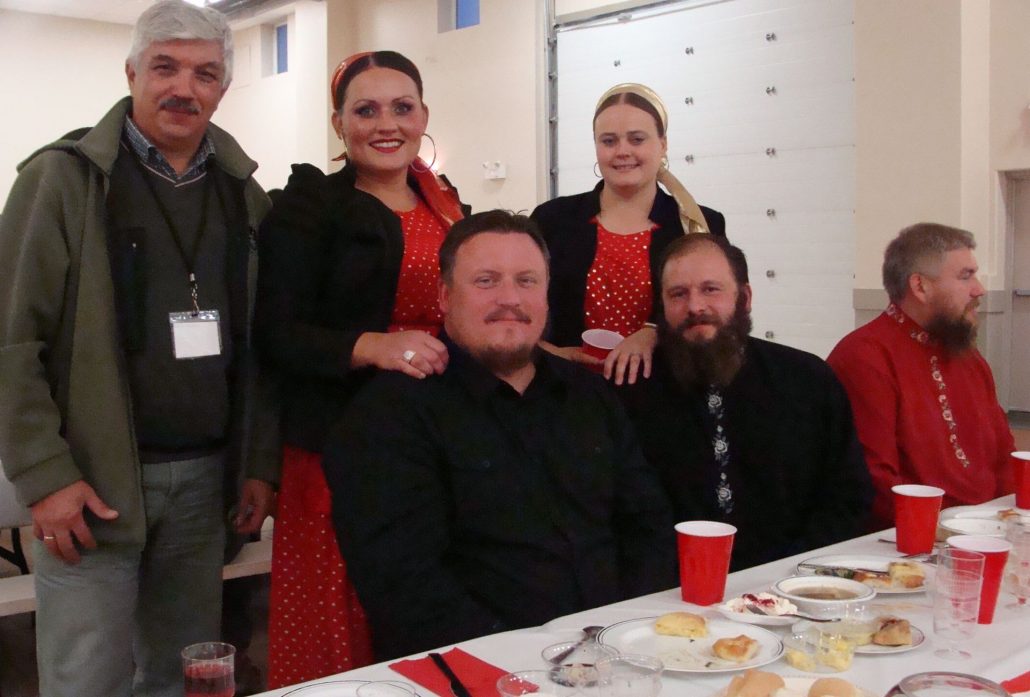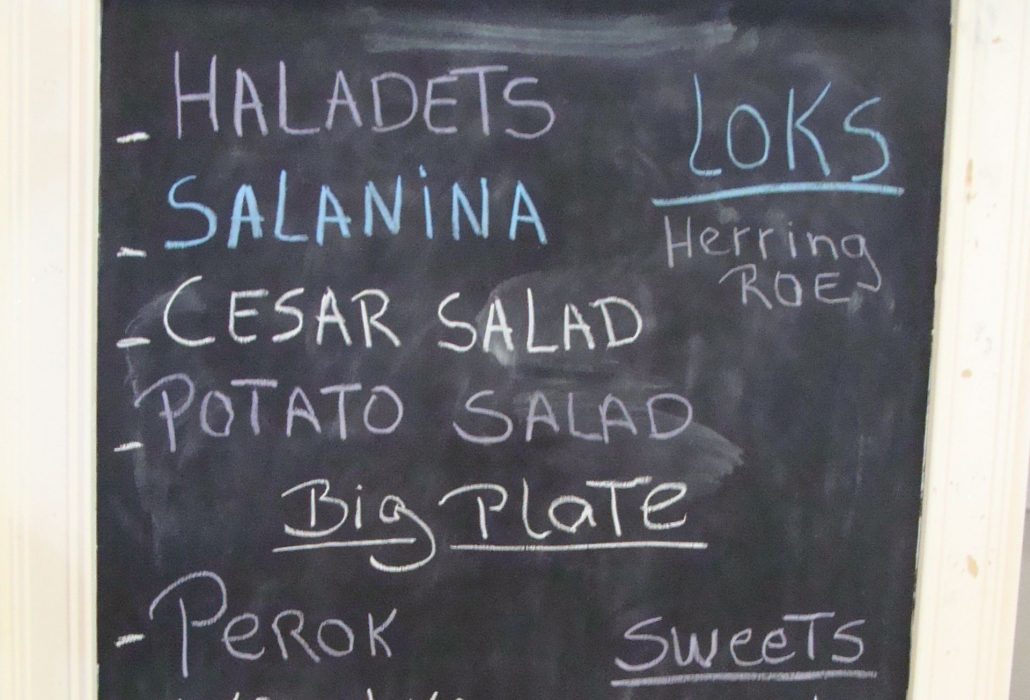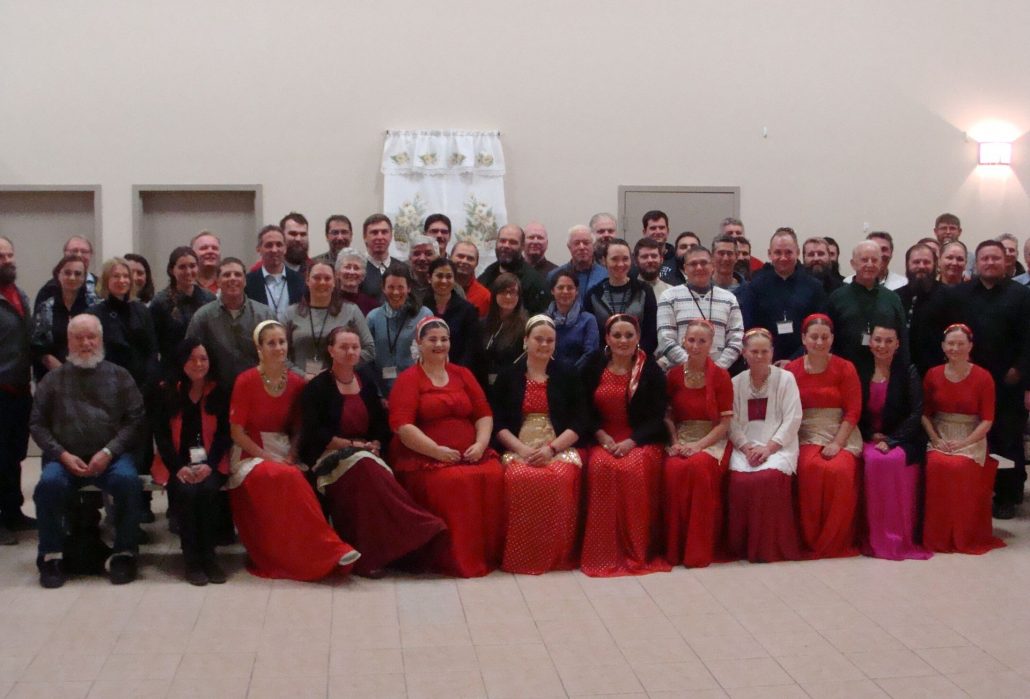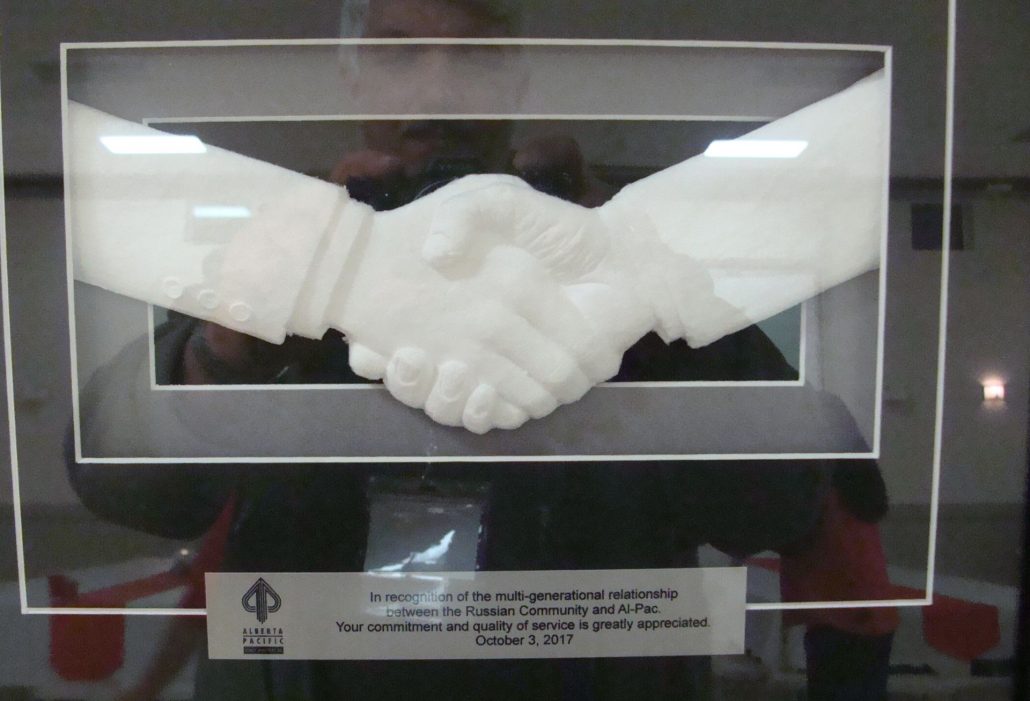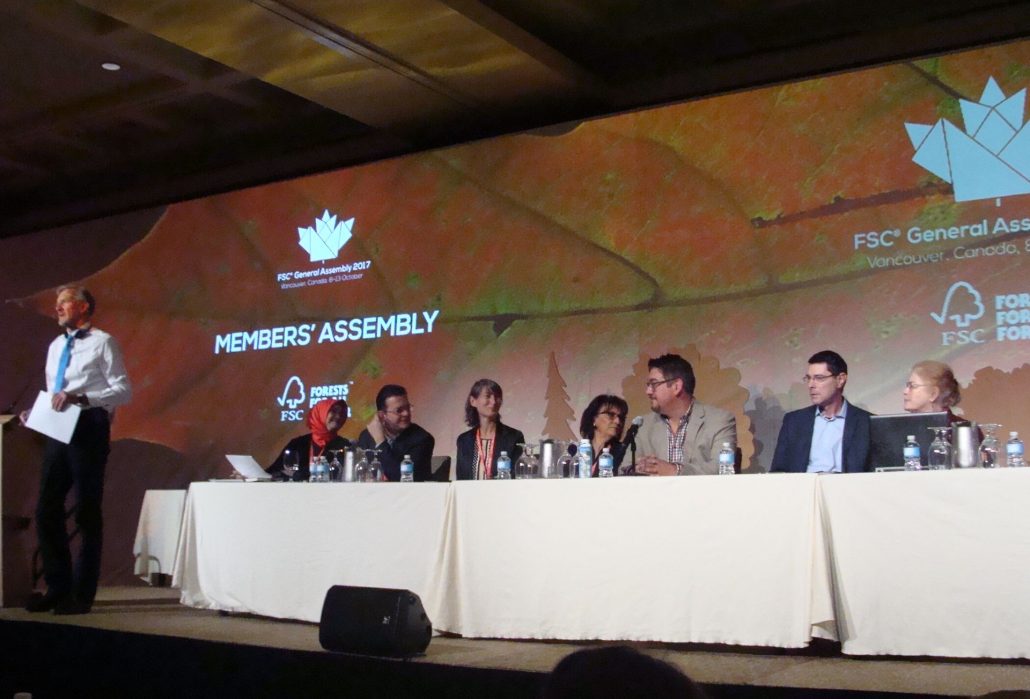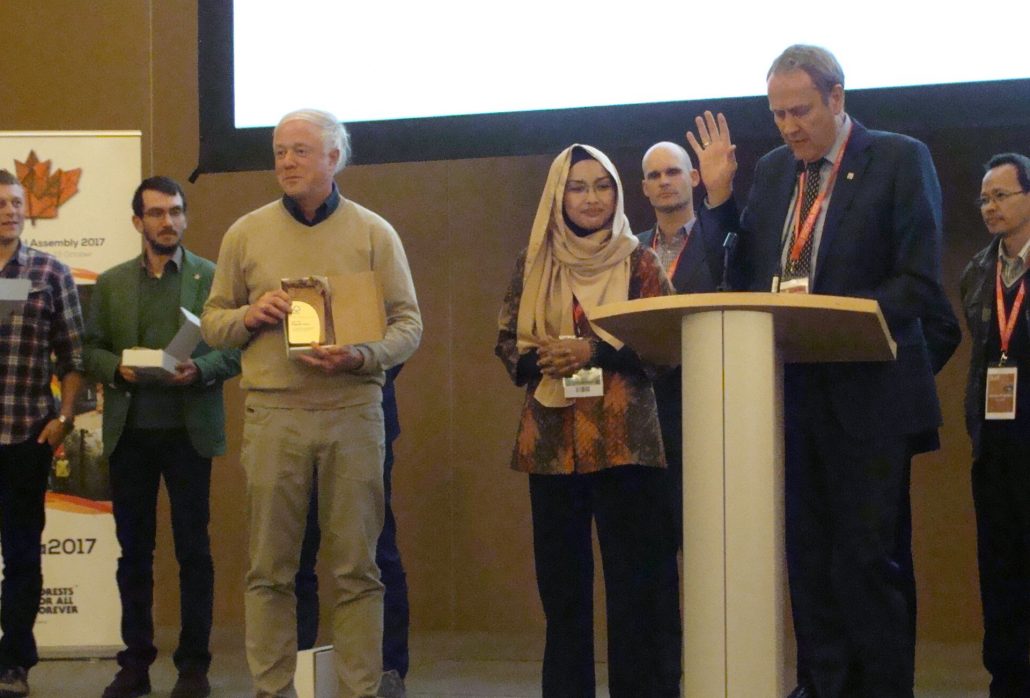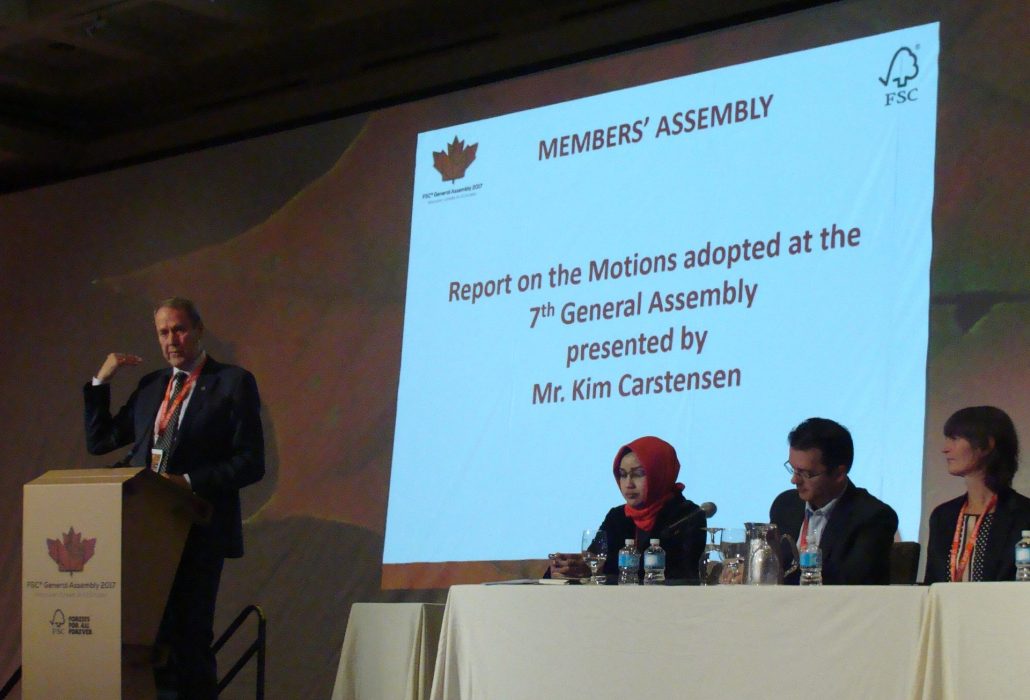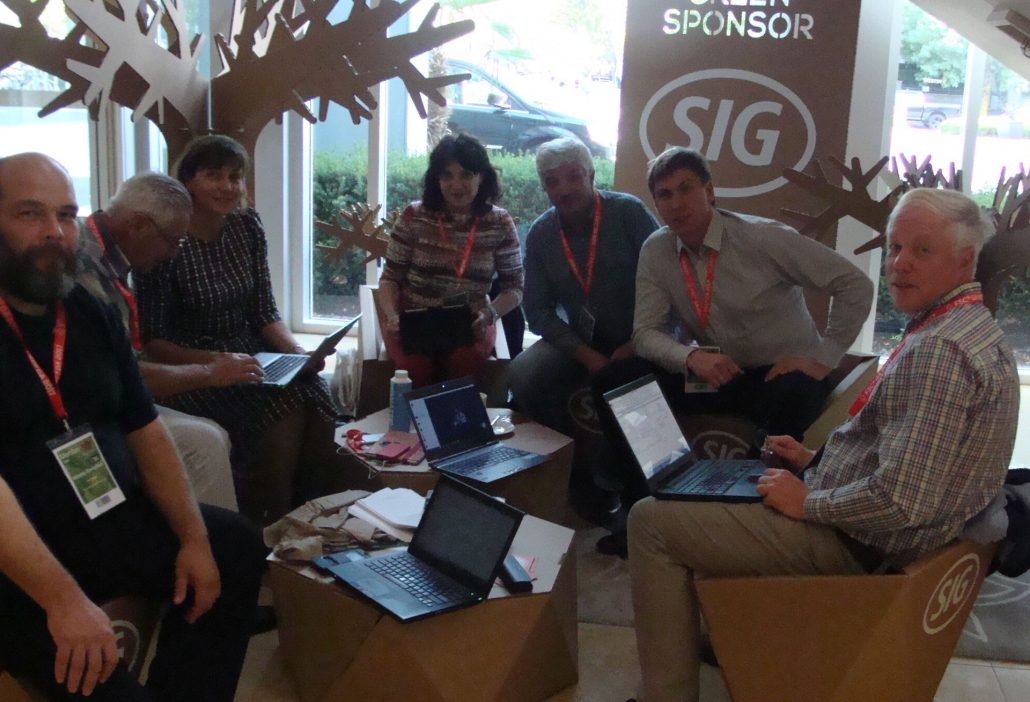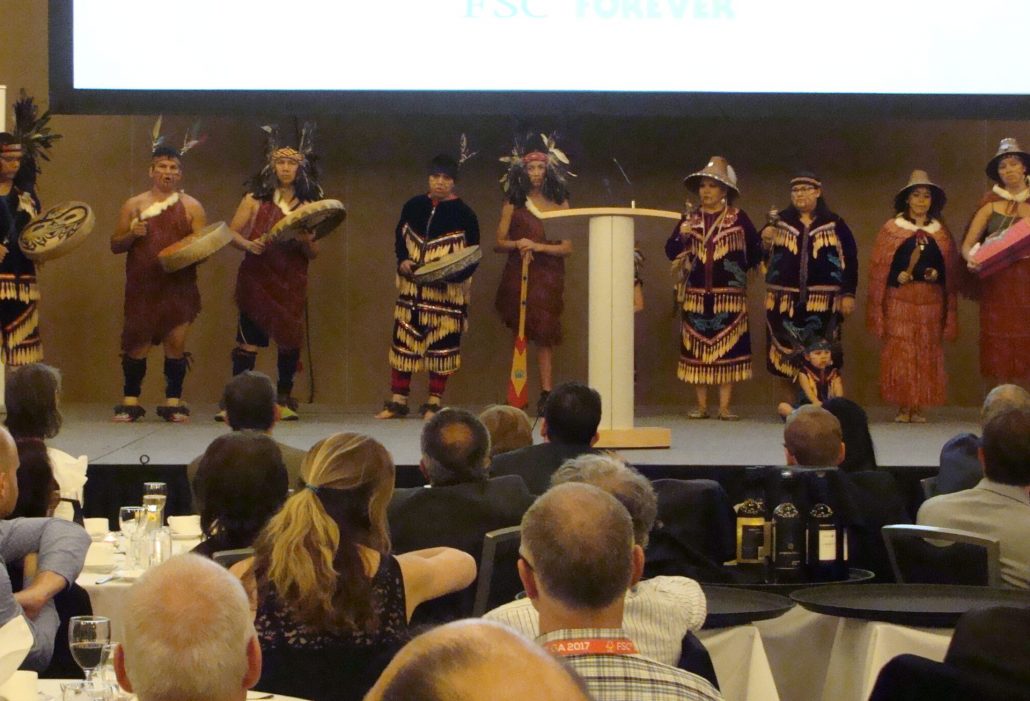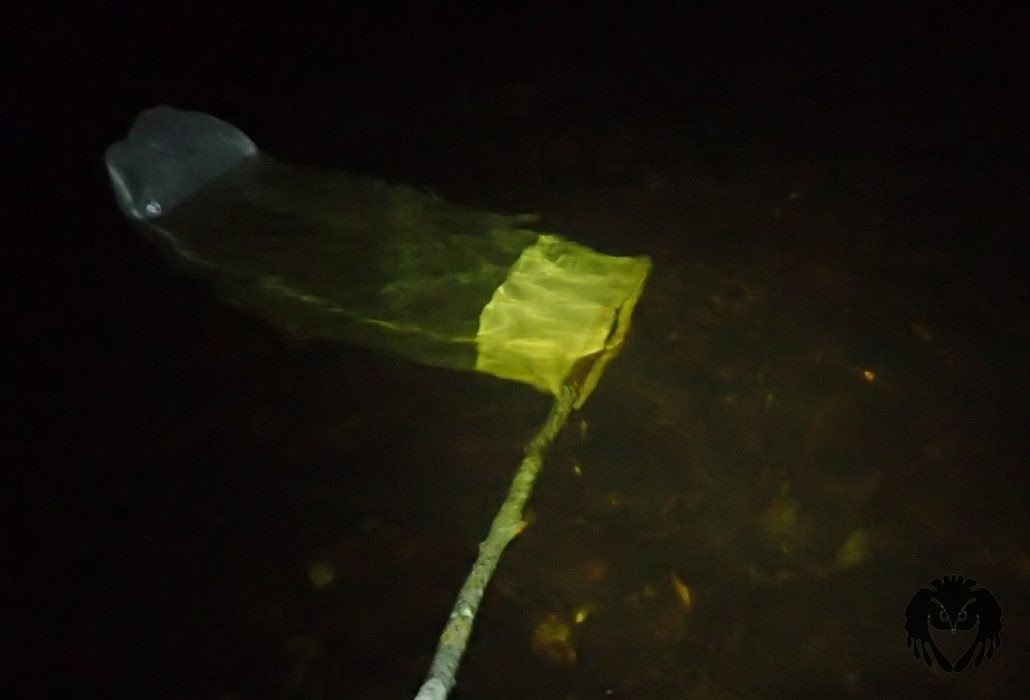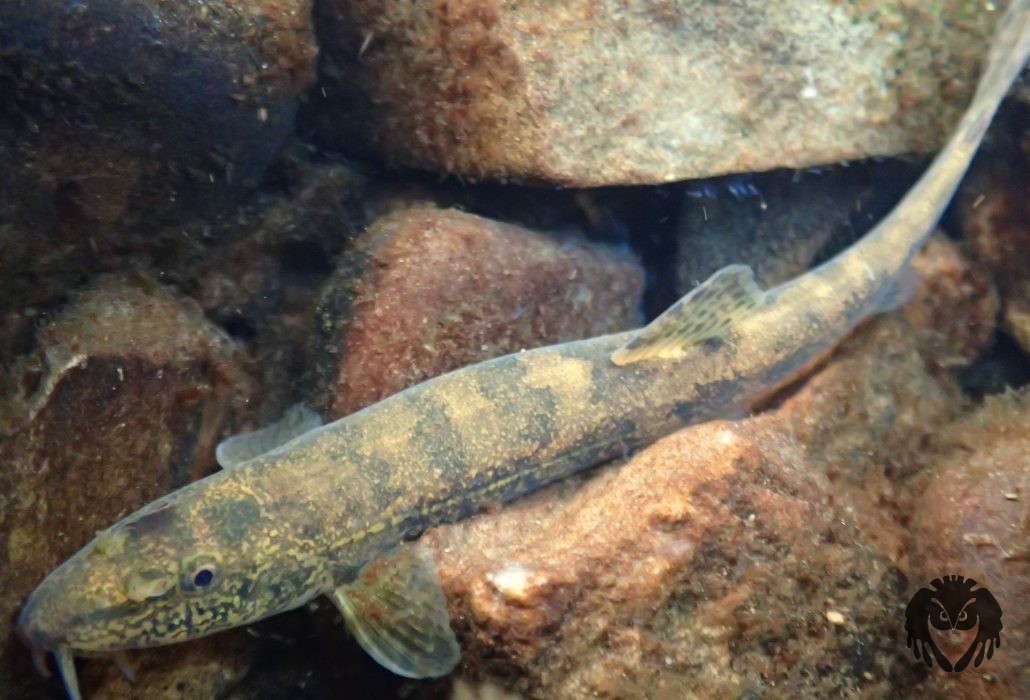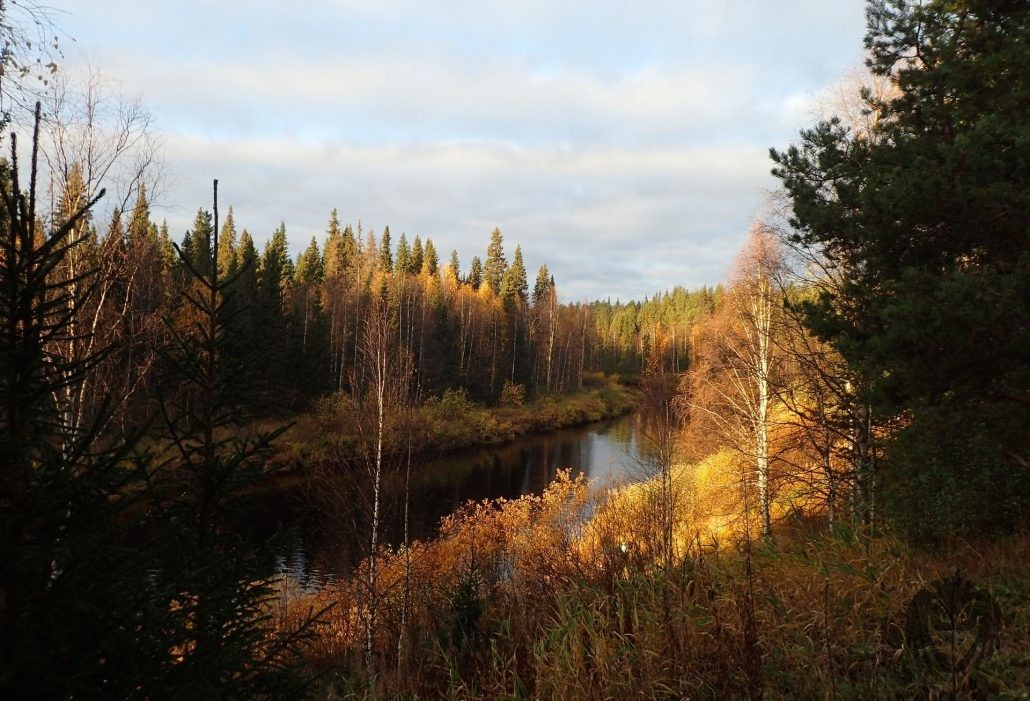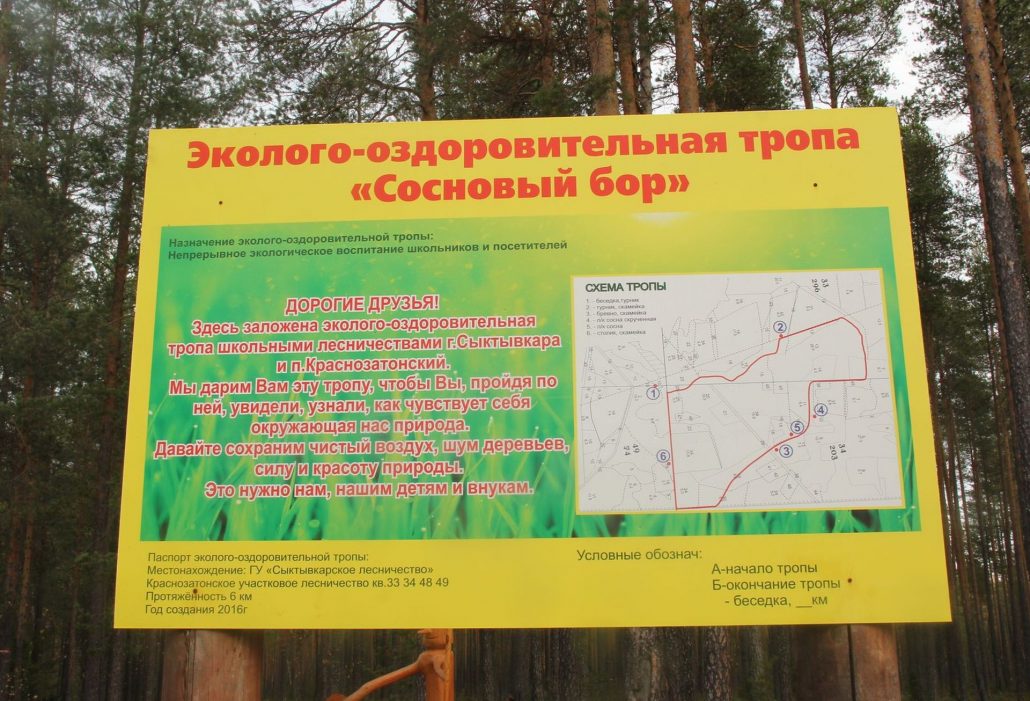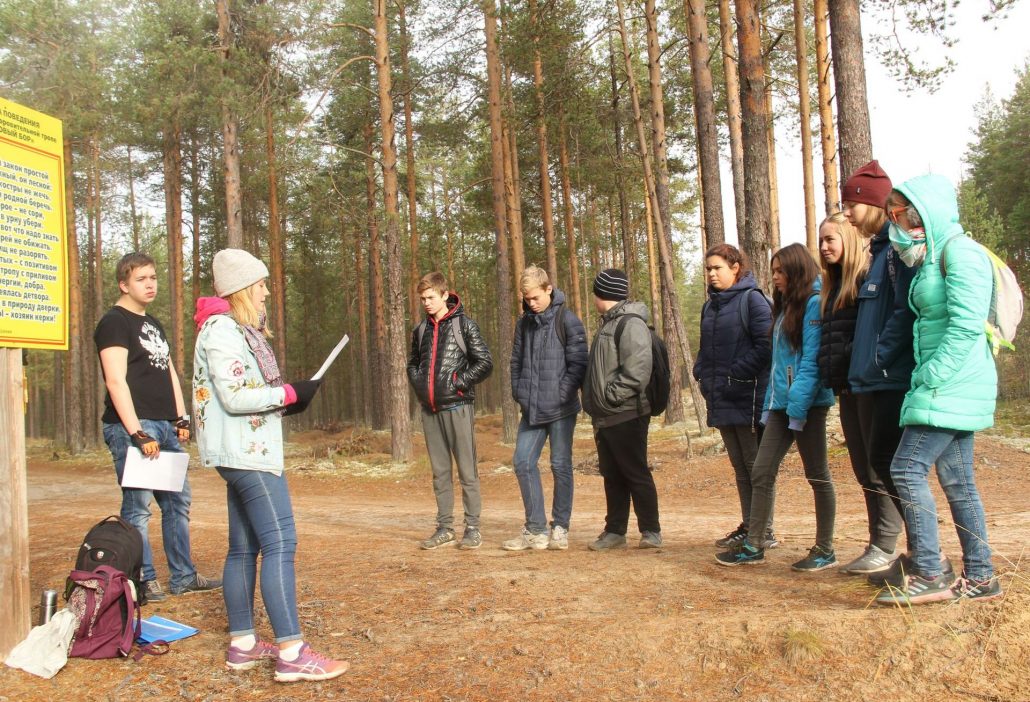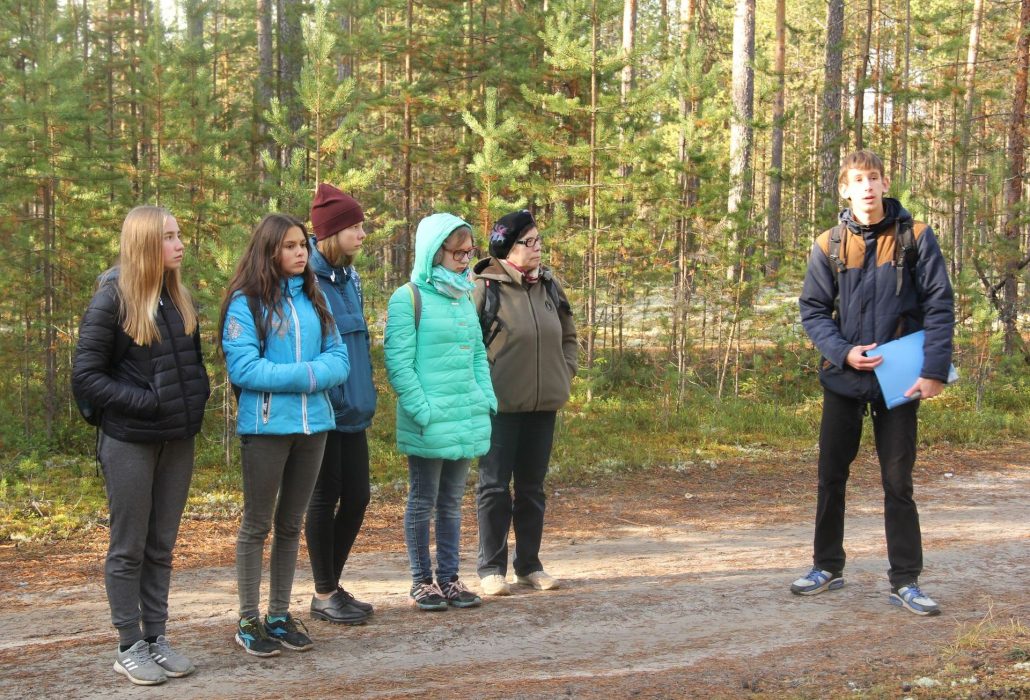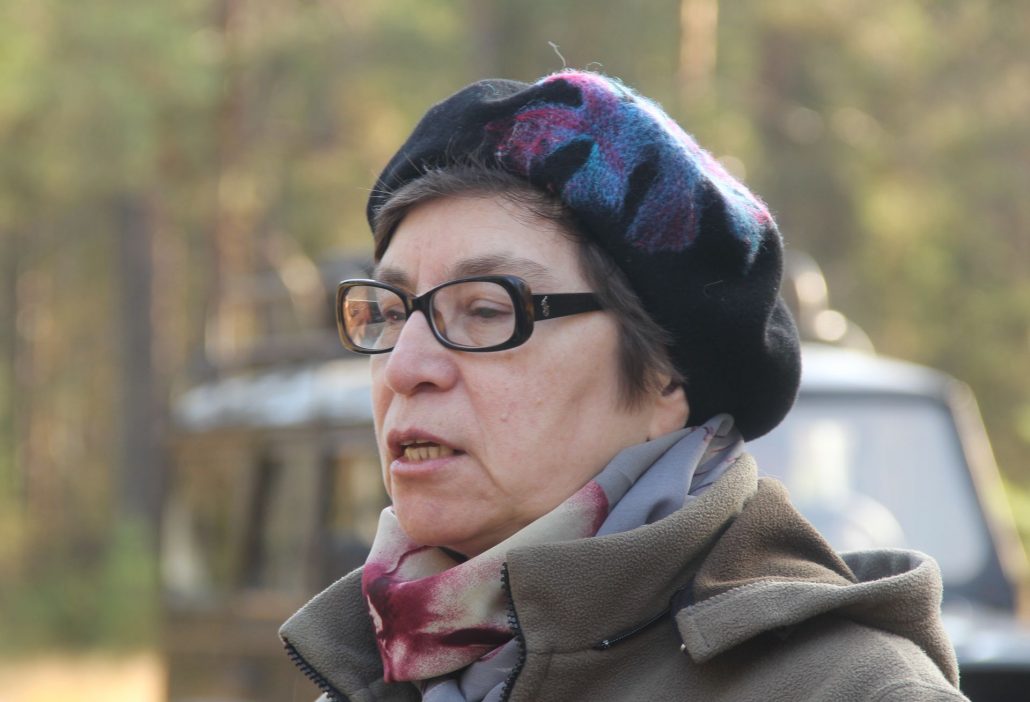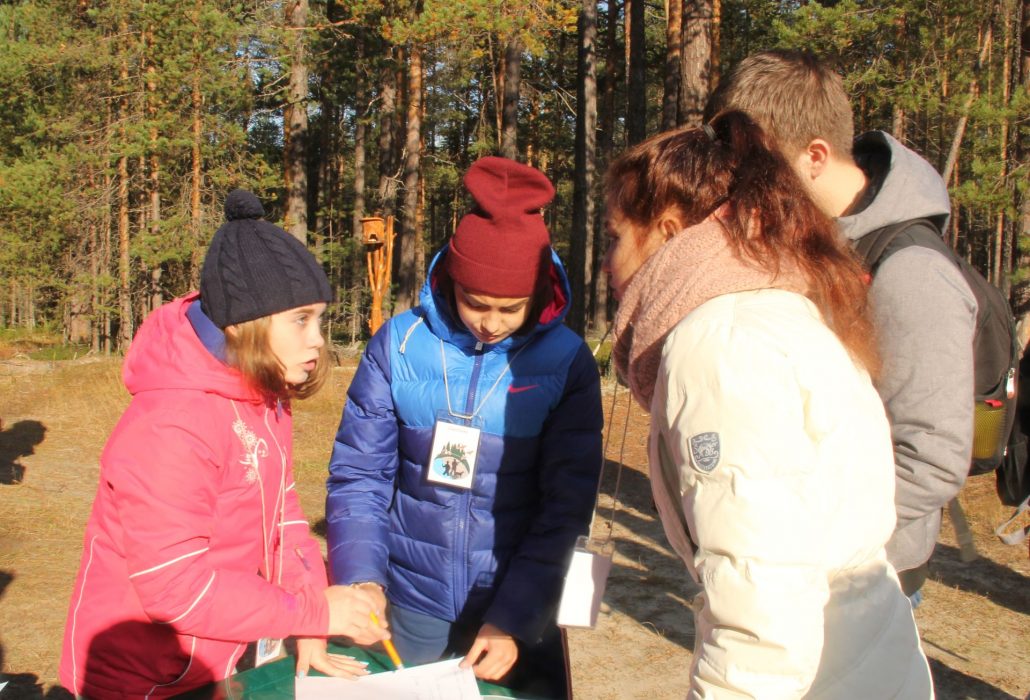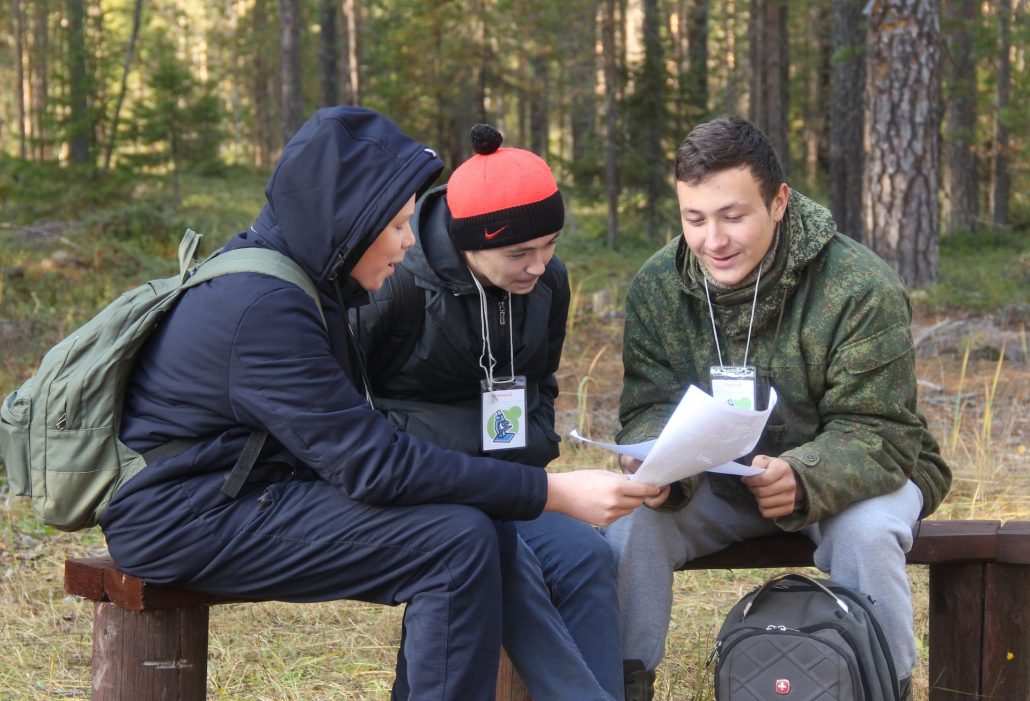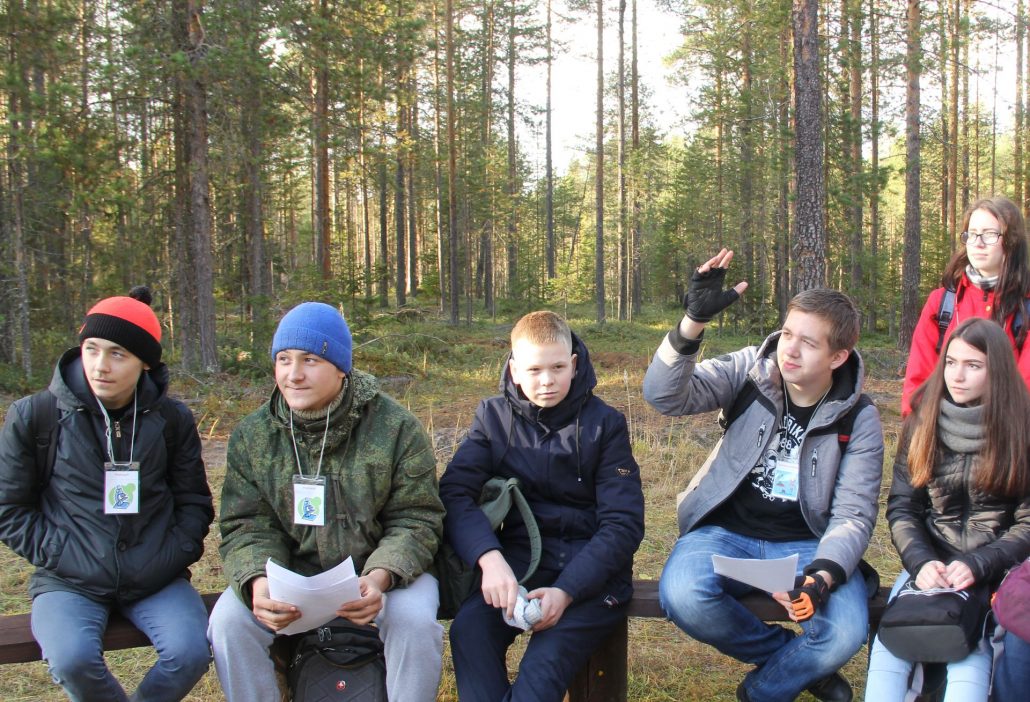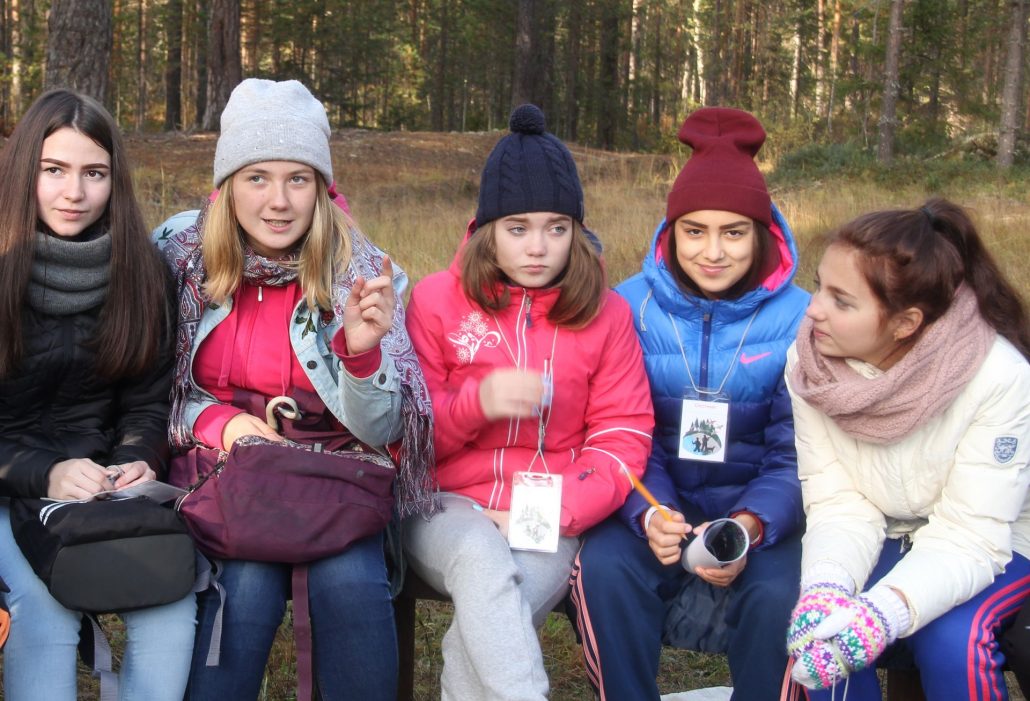This unexpected, but meaningful question was raised by the participants of the round table meeting held on 29 November 2017 in the office of the Silver Taiga Foundation for Sustainable Development. The topic for the conversation was relations with uncertified forestry companies that have undertaken an obligation to follow the Standard for the so-called controlled wood. The round table meeting was entitled respectively – Local Residents and Uncertified Forestry Business (Mechanism for FSC Controlled Wood Standard, Public Access to Logging Information Following Forest Auctions). The event was arranged with the support of WWF as part of the Barents-Baltic Program Nature and Man.
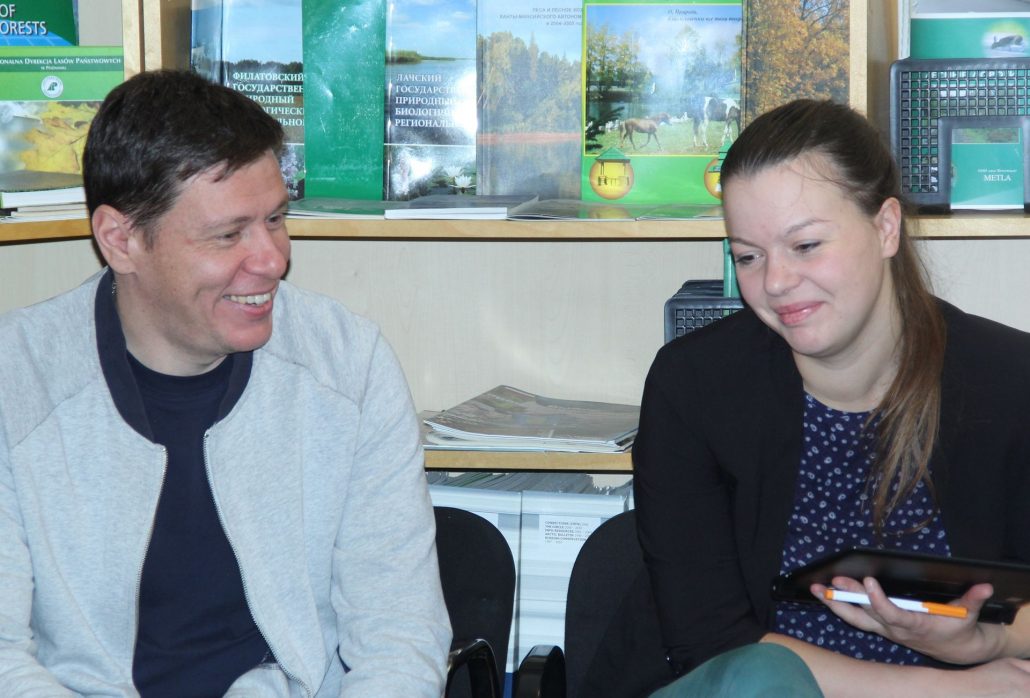
Vadim Krasnopolsky, WWF Russia project coordinator, and Nadezhda Iniyeva, WWF Russia expert
Representatives of Mondi Syktyvkar and local communities of some of the Komi forestry areas got together to discuss possible options for the public participation in the forest management process. The Silver Taiga Foundation has conducted consultations on sustainable forest management for several years, so public activists are now well informed about the FSC certification, however, they know little of the Controlled Wood Standard, as the meeting revealed.
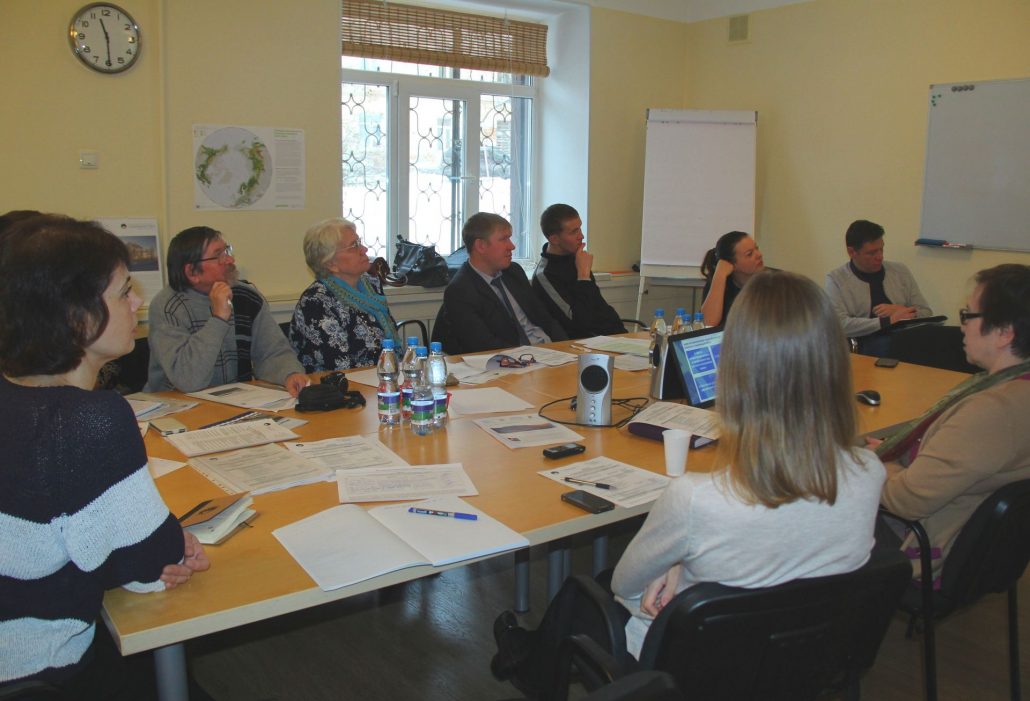
All attention to the screen
The round table meeting was attended by public activists of Kortkeros, Syktyvdin, Priluzye and Udora districts of the Komi Republic who represent public forest councils of rural areas and the Komi Voytyr Interregional Public Movement. Silver Taiga’s Valentina Semyashkina, Nikolay Shuktomov and Olga Sazhina reported to the participants on the FSC Controlled Wood Standard mechanism and the procedure of forestry auctions in the Republic.
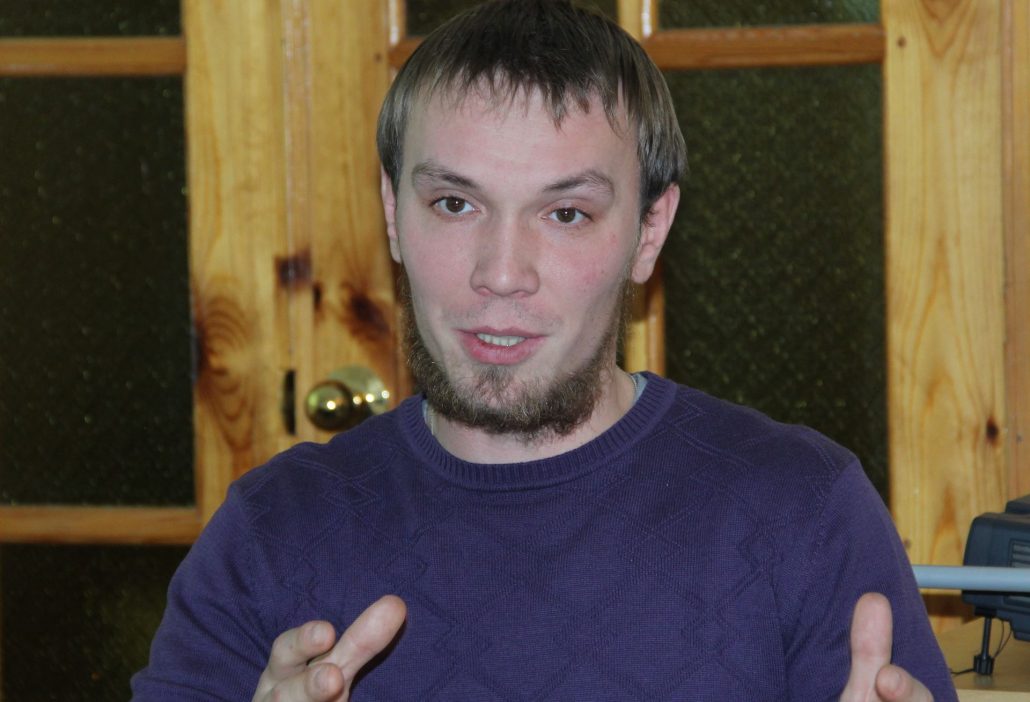
Nikolay Shuktomov, Silver Taiga Foundation Forestry Coordinator
A lot of logging companies operate in the Komi Republic, however, it was Mondi Syktyvkar that was invited to the meeting, as it is one of the biggest FSC certificate holders and one of the key consumers of wood in the region. The mill has its own harvesting division, in addition, it purchases wood from other non-certified companies, as the amount of own certified wood is not enough to cover the demand. Interaction with external suppliers imposes additional liabilities for the company. The company meets the FSC Certification Standard and FSC Controlled Wood Standard requirements through setting certain requirements for the suppliers and checking their compliance.
‘The controlled wood standard was introduced in 2004, and it is quite difficult to be fulfilled. Some of the companies haven’t yet started operating under the new standard, even though the transition period was prolonged twice. The debates are still ongoing regarding what to do with the standard’, Marina Korolyova, head of certification and environment department, Forestry, Mondi Syktyvkar, said at the meeting.
One of the causes that triggered the Controlled Wood Standard was the need to provide processing companies with the opportunity to use non-certified wood in the production process by mixing it with certified material in order to mark the finished goods with the FSC Mix label. Nevertheless, to make it possible the company has to do a lot to meet complex FSC requirements.
Tatyana Dyukova from Mondi Syktyvkar’s certification and environment department shared the experience of how the FSC Controlled Wood Standard operates.
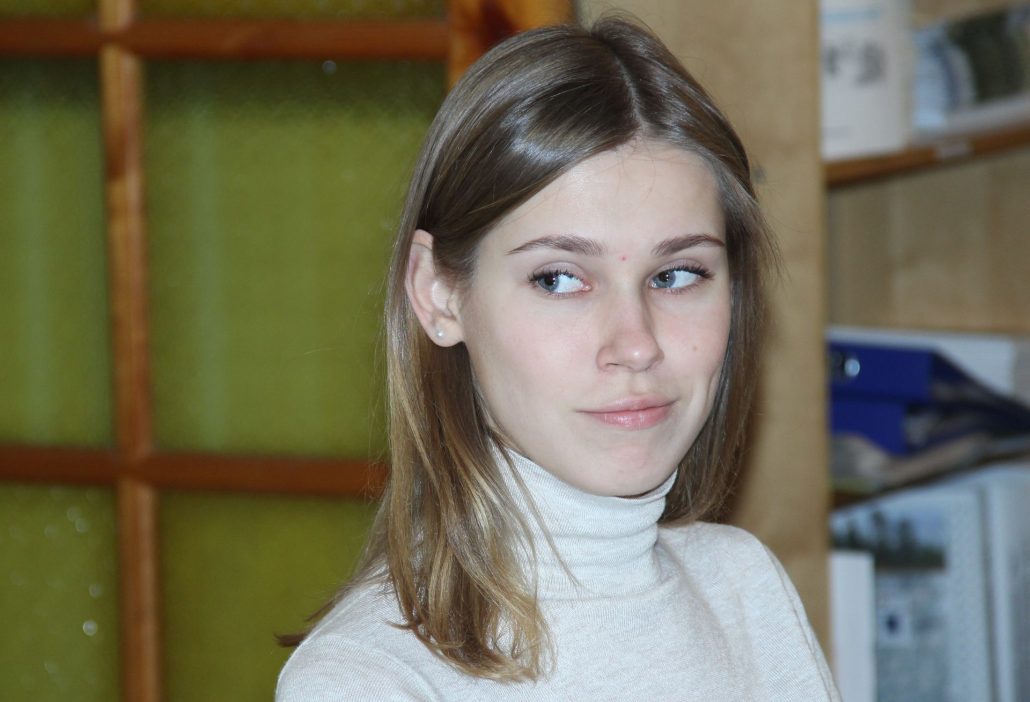
Tatyana Dyukova, expert of the certification and environment department, Mondi Syktyvkar
To exclude raw material from inacceptable sources to meet the Controlled Wood Standard requirements the company makes planned and unplanned audits of contracting and subcontracting organizations. Unplanned checks are conducted in case of any claims with regard to suppliers’ or subsuppliers’ failure to meet the requirements for controlled wood. The checks are held by the company’s employees, but as the voluntary forest certification is based on the principle of transparency for the public, representatives of stakeholders, as well as public activists, are also invited to participate.
A special focus is given by the company to settling of heated conflicts related to traditional rights of the locals, including the ones for resource management, and resolution of disputes arising from observing cultural interests of indigenous peoples and their traditional and cultural self-identification.
‘To take risk mitigating measures the company studies public opinion, checks if there are any heated conflicts, consults with district and rural administrations, talks to specialists from district forestries and representatives of NGOs like Komi Voytyr and the Komi Republic Association of Hunters and Fishers. Any interested party may take part in the auditing process, the company considers all complaints in line with the established procedure and takes appropriate measures, as it decides whether it will cooperate with the violating supplier or not’, Tatyana Dyukova said in her report.
The company gets the information via requests. All mail correspondence is being currently replaced by e-mailing. However, many public activists have no access to the Internet, so consultations are arranged with them by phone. The survey shows if there are any complaints or conflicts arising from the activity of this or that supplier.
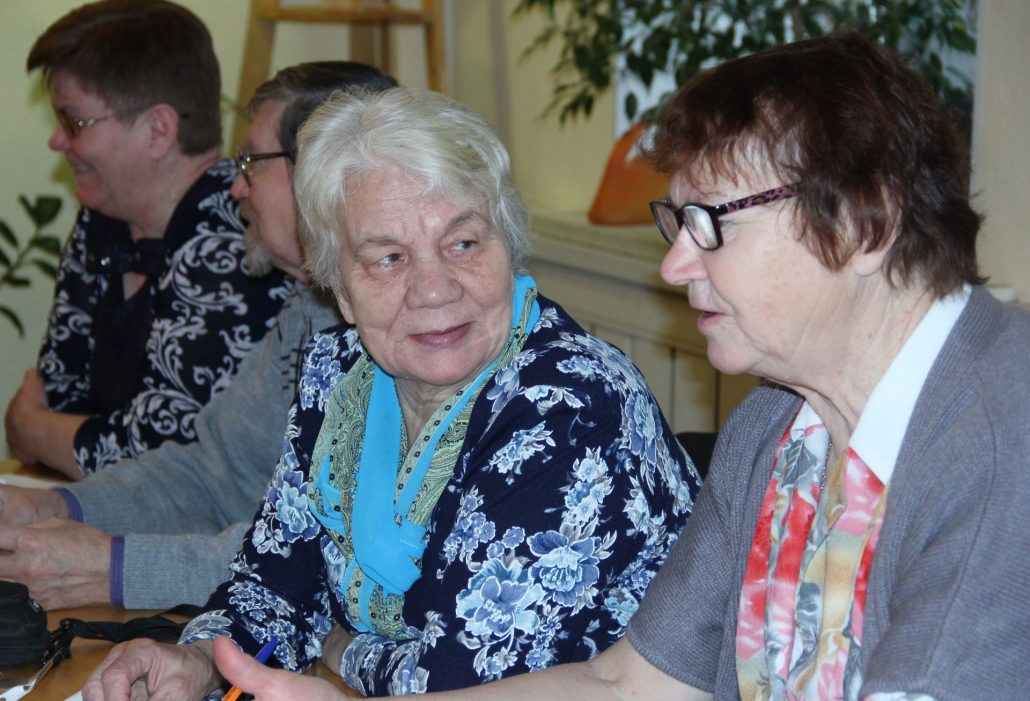
Exchanging opinions
The participants of the meeting wondered if it was possible to track the source of wood designated for housing construction. How can individuals find out if the house they are building will be made of certified wood? According to Tatyana Dyukova, information about FSC certified companies is in public access, the list of FSC certificate holders can be found at the website of the Russian FSC (Forest Stewardship Council) office https://ru.fsc.org/ru-ru/cert/fsc_companii. But the information on companies meeting the controlled wood standard is a commercial secret, as Tatyana reported. ‘It is confidential information, but stakeholders, including public activists, are entitled for this information, and we are ready to provide you with the lists of companies supplying wood to Mondi Syktyvkar from various districts’, Tatyana said.
The issue regarding “integrity” of the sources of wood for individual housing construction raised at the meeting was quite significant. It has been thought up to the present time that only big companies supplying goods to the environmentally sensitive European market have to get certification. But if consumers at the Komi Republic market will pay that much attention to product labelling as foreign buyers, small companies will also have to obtain certificates, otherwise their wood will not ne demanded. At the moment small businesses and self-employed entrepreneurs dealing with logging and wood processing in Komi find it impossible to get FSC certificates due to high cost of the above, services of auditors are unaffordable for small companies.
To summarize the results of the round table meeting facilitated by Silver Taiga head of the administration of the Spasorub village, Priluzye district, noted that she had finally built the system with all the FSC information coming from different sources. It turned out that she, just like many others, missed the only information “puzzle” – the one regarding controlled wood. Therefore, according to her, it will be easier for the interested parties to build relations with all forest management process participants, as now each of the parties understands its objective.
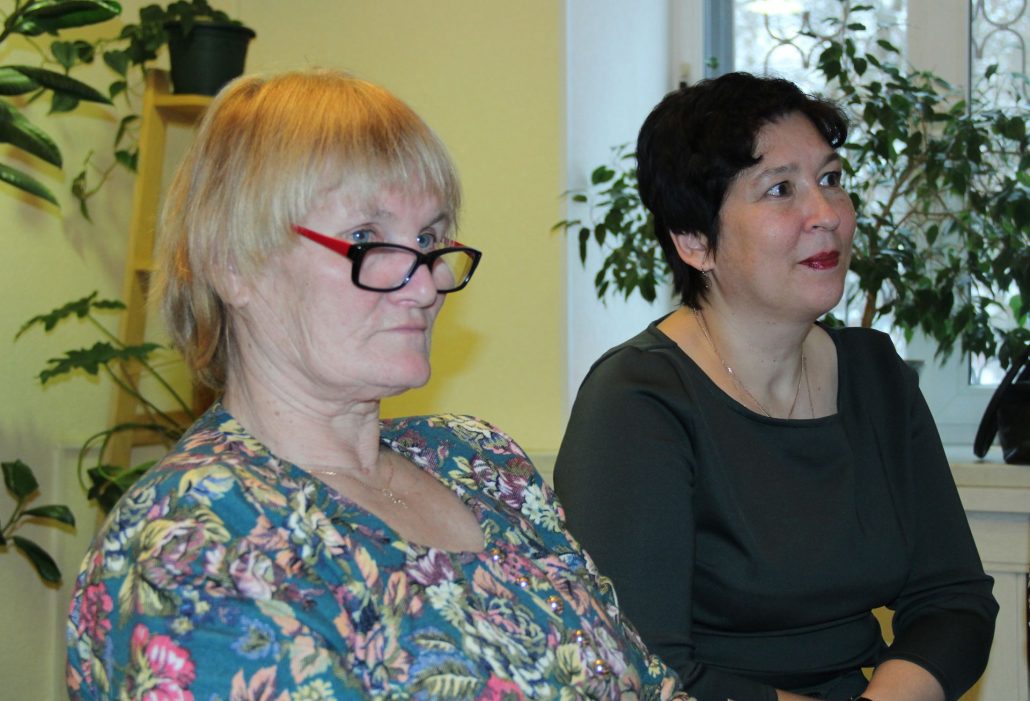
Natalia Vetoshkina, representative of the public forest council of Keres, Kortkeros district, and Oksana Pomysova, head of Spasorub administration, Priluzye district
‘Some time ago we managed to protect the interests of the local population in the conflict with a certified company. The locals were provided with 4 quartiles of forest for traditional use. At this meeting we learnt how to build relations with a non-certified company fulfilling the Controlled Wood Standard. Informed means protected. Today we got some guidance for action. I can’t help waiting, I want to bring some of the violations to light’, Vasily Mikhailov, representative of the public forest council of Keres, Kortkeros district, joked.
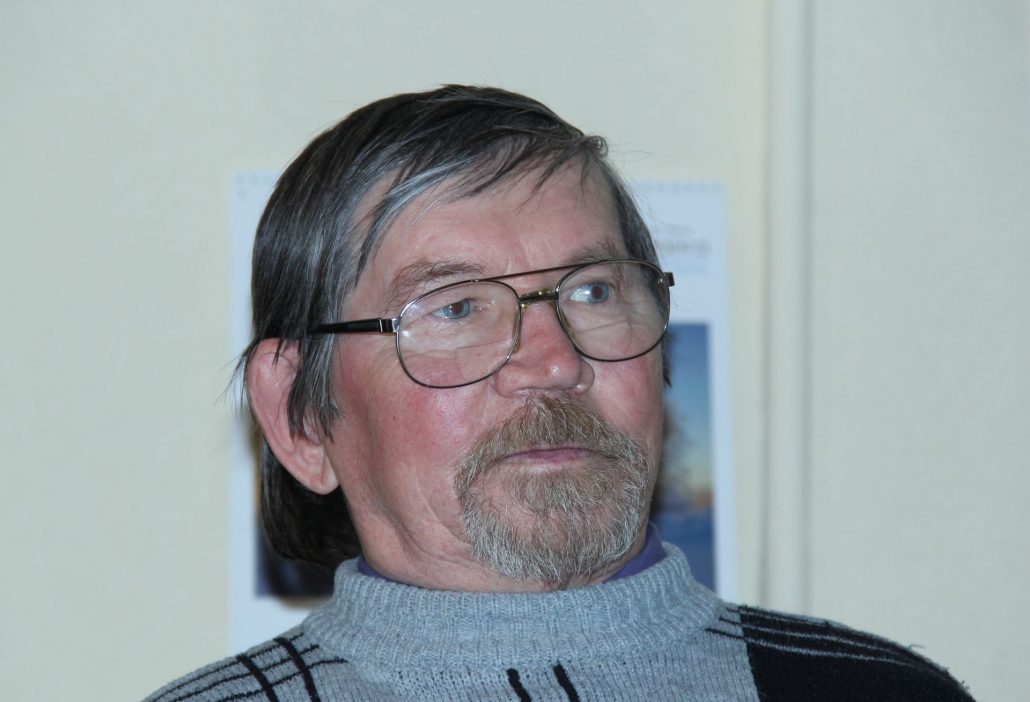
Vasily Mikhailov, representative of the public forest council of Keres, Kortkeros district
Most of the round table participants were happy to note young activists at the meeting. The young people showed their readiness to participate in the events under the international Barents-Baltic Program Nature and Man spoken about by Vadim Krasnopolsky, project coordinator of World Wildlife Fund (WWF Russia, Barents Sea office). In particular, he said that Murmansk region is conducting forest regeneration activities under this project. Near the Pomor village of Kuzomen a desert is emerging – more and more sand can be found in the area. Therefore, regeneration activities have been launched as part of the project. It is notable that all the activities involve school children and school forestries. Teachers Ivan Tugolukov (Priluzye district) and Mikhail Gabov (Kortkeros district), who were present at the meeting as well, said they were ready to start work on revival and activation of school forestries in their villages.
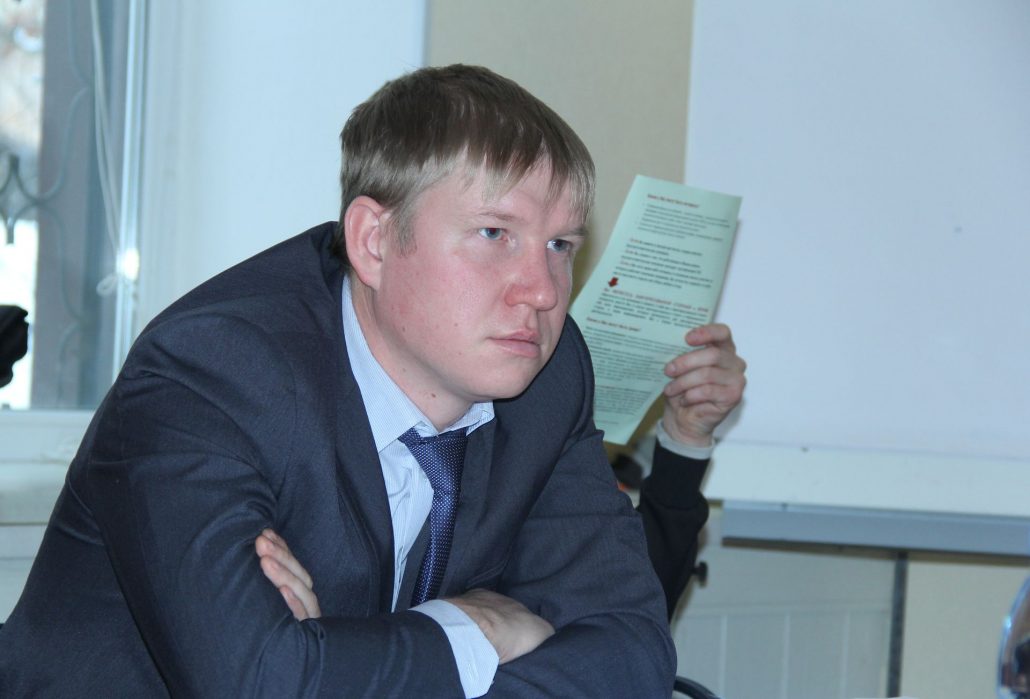
Ivan Tugolukov, representative of the public forest council of Priluzye district

